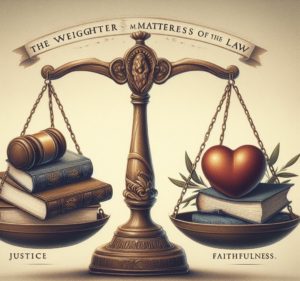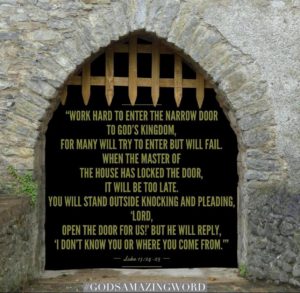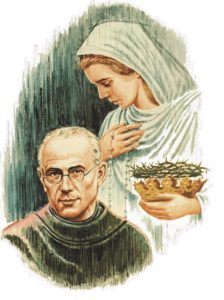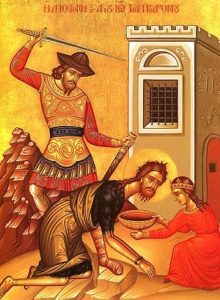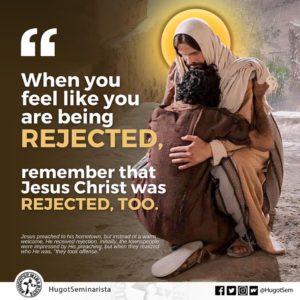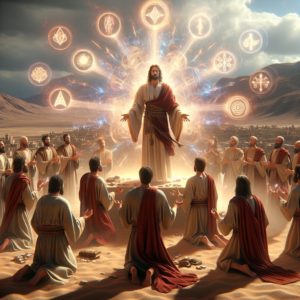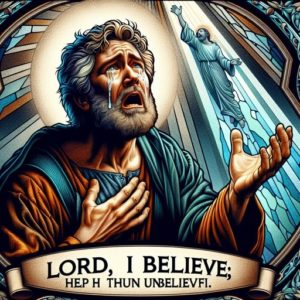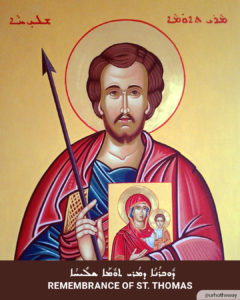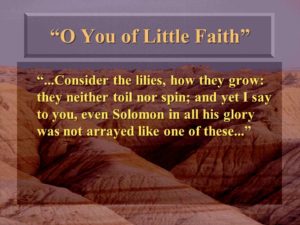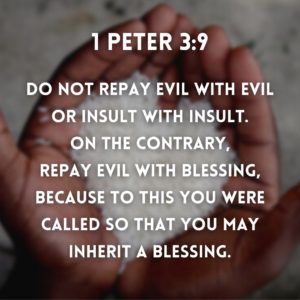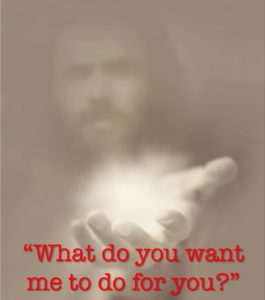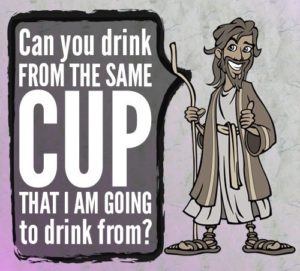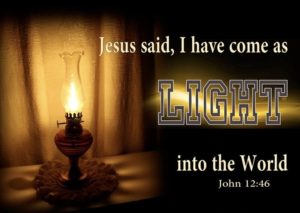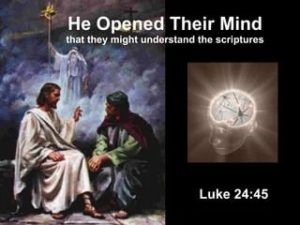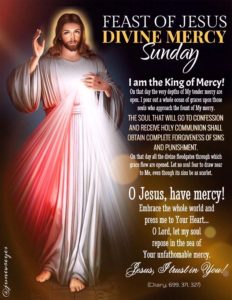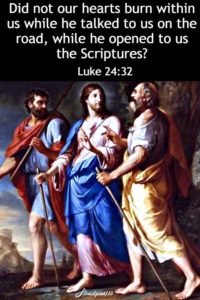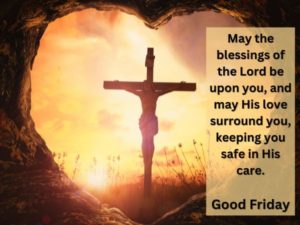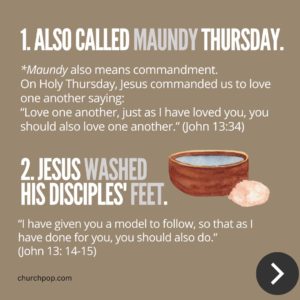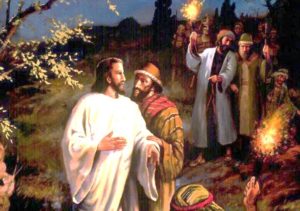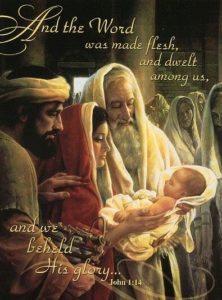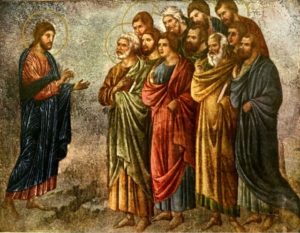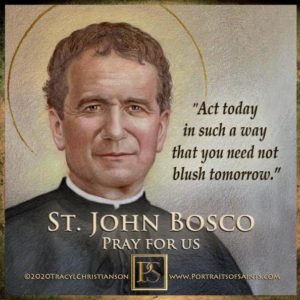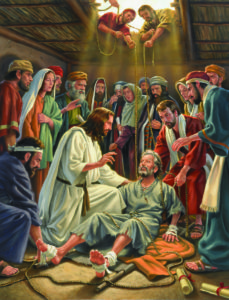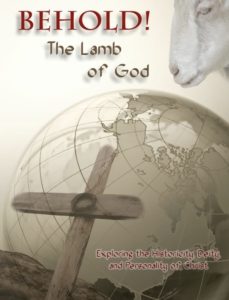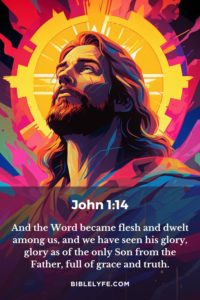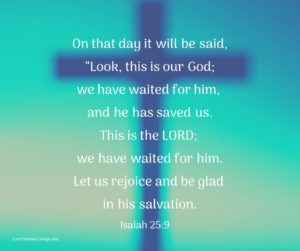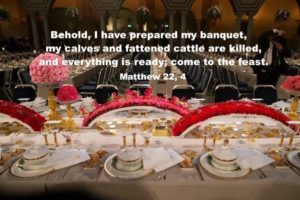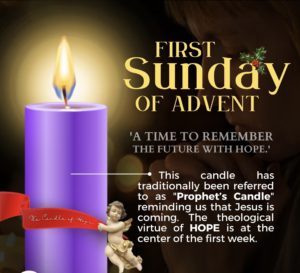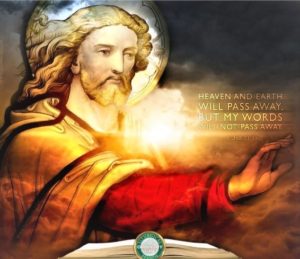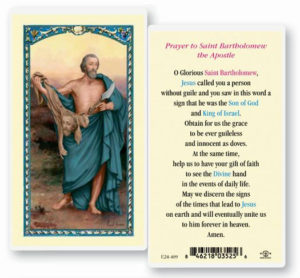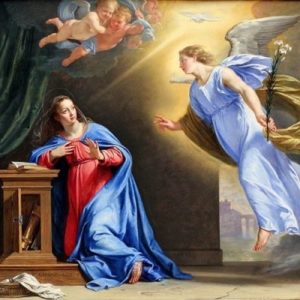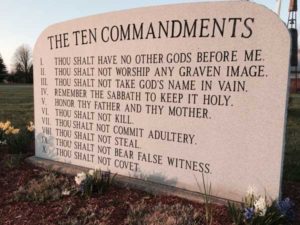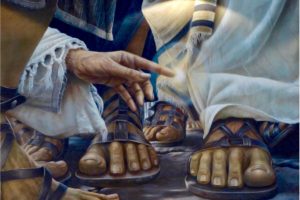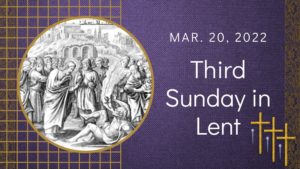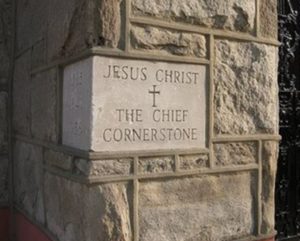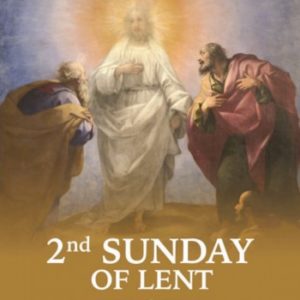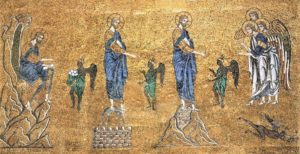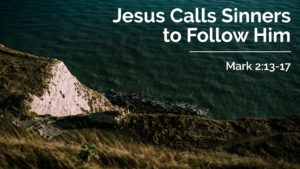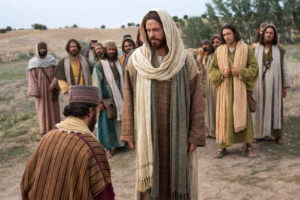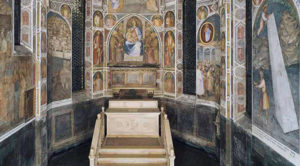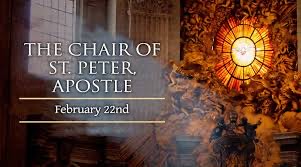MORE DAILY REFLECTIONS
Scripture for today...
Matthew 23:23-26
Do Not Neglect Justice, Mercy and Faith
Do you allow any blind-spots to blur your vision of God’s kingdom and his ways? Jesus went to the heart of the matter when he called the religious leaders of his day blind Pharisees and hypocrites!
A hypocrite is an actor or imposter who says one thing but does the opposite or who puts on an outward appearance of doing good while inwardly clinging to wrong attitudes, selfish desires and ambitions, or bad intentions.
Many scribes and Pharisees had made it a regular practice to publicly put on a good show of outward zeal and piety with the intention of winning greater honors, privileges, and favors among the people.
Jesus had a very good reason for severely rebuking the scribes and Pharisees, the religious teachers and leaders, for misleading people and neglecting the heart and essence of God’s law – love of God and love of neighbor What forms our outward practices and habits?The scribes in particular devoted their whole lives to the study of God’s law contained in the five books of Moses (Torah). As the religious experts of their day, they took great pride in their knowledge and outward observance of the commandments and precepts of the law of Moses.
They further divided the 613 precepts of the Law of Mosesinto thousands of tiny rules and regulations. They were so exacting in their interpretations and in trying to live them out, that they had little time for much else.
By the time they finished compiling their interpretations it took no less than fifty volumes to contain them! Jesus chastised them for neglecting the more important matters of religion, such as justice and the love of God. In their misguided zeal they had lost sight of God and of his purpose for the law. God’s law of love reveals what is truly important and necessaryJesus used the example of tithing to show how far they had missed the mark. God had commanded a tithe of the first fruits of one’s labor as an expression of thanksgiving and honor for his providential care for his people (Deuteronomy 14:22; Leviticus 27:30).
The scribes, however, went to extreme lengths to tithe on insignificant things (such as tiny plants) with great mathematical accuracy. They were very attentive to minute matters of little importance, but they neglected to care for the needy and the weak.
Jesus admonished them because their hearts were not right. They were filled with pride and contempt for others who were not like themselves. They put unnecessary burdens on others while neglecting to show charity, especially to the weak and the poor. The scribes and Pharisees meticulously went through the outward observance of their religious duties and practices while forgetting the realities of God’s intention and purpose for the law – his love and righteousness (justice and goodness).
Jesus used a humorous example to show how out of proportion matters had gotten with them. Gnats were considered the smallest of insects and camels were considered the largest of animals in Palestine. Both were considered ritually impure.
The scribes went to great lengths to avoid contact with gnats, even to the point of straining the wine cup with a fine cloth lest they accidentally swallowed a gnat. The stark contrast must have drawn chuckles as well as groans. God’s love shapes our minds and transforms our hearts and actions What was the point of Jesus’ humorous and important lesson?
The essence of God’s commandments is rooted in love – love of God and love of neighbor, righteousness (justice and goodness), and mercy. God is love and everything he does, including his justice and goodness, flows from his love for us.
True love is costly and sacrificial – it both embraces and lifts the burdens of others. Do you allow the love of God to shape and transform the way you live your daily life – including the way you think of others, speak of them, and treat them?
📗📗🙏🏻Prayer🙏🏻📗📗
“Lord Jesus, fill me with your love and mercy that I may always think, speak, and treat others with fairness, loving-kindness, patience, and goodness.” Amen
✳️✳️✳️✳️🔰🔰🔰🔰✳️✳️✳️✳️
🟢The Life Story of the Saint🟢
Saint Monica
c. 330 – 387
The circumstances of St. Monica’s life could have made her a nagging wife, a bitter daughter-in-law, and a despairing parent, yet she did not give way to any of these temptations.
Although she was a Christian, her parents gave her in marriage to a pagan, Patricius, who lived in her hometown of Tagaste in North Africa. Patricius had some redeeming features, but he had a violent temper and was licentious. Monica also had to bear with a cantankerous mother-in-law who lived in her home.
Patricius criticized his wife because of her charity and piety, but always respected her. Monica’s prayers and example finally won her husband and mother-in-law to Christianity. Her husband died in 371, one year after his baptism.
Monica had at least three children who survived infancy. The oldest, Augustine, is the most famous. At the time of his father’s death, Augustine was 17 and a rhetoric student in Carthage.
Monica was distressed to learn that her son had accepted the Manichean heresy—”all flesh is evil”—and was living an immoral life. For a while, she refused to let him eat or sleep in her house.
Then one night she had a vision that assured her Augustine would return to the faith. From that time on, she stayed close to her son, praying and fasting for him. In fact she often stayed much closer than Augustine wanted.
When he was 29, Augustine decided to go to Rome to teach rhetoric. Monica was determined to go along. One night he told his mother that he was going to the dock to say goodbye to a friend. Instead he set sail for Rome. Monica was heartbroken when she learned of Augustine’s trick, but she still followed him.
She arrived in Rome only to find that he had left for Milan. Although travel was difficult, Monica pursued him to Milan. In Milan, Augustine came under the influence of the bishop, St. Ambrose, who also became Monica’s spiritual director.
She accepted his advice in everything and had the humility to give up some practices that had become second nature to her. Monica became a leader of the devout women in Milan as she had been in Tagaste.
She continued her prayers for Augustine during his years of instruction. At Easter 387, St. Ambrose baptized Augustine and several of his friends. Soon after, his party left for Africa.
Although no one else was aware of it, Monica knew her life was near the end. She told Augustine, “Son, nothing in this world now affords me delight. I do not know what there is now left for me to do or why I am still here, all my hopes in this world being now fulfilled.” She became ill shortly after and suffered severely for nine days before her death.
Almost all we know about St. Monica is in the writings of St. Augustine, especially his Confessions.
Reflection
Today, with Google searches, online shopping, text messages, tweets, and instant credit, we have little patience for things that take time. Likewise, we want instant answers to our prayers. Monica is a model of patience.
Her long years of prayer, coupled with a strong, well-disciplined character, finally led to the conversion of her hot-tempered husband, her cantankerous mother-in-law and her brilliant but wayward son, Augustine.
Saint Monica is the Patron Saint of:
AlcoholicsConversionMothersWives
JESUS I TRUST IN YOU!
Scripture for today...
Matthew 23:13-22
Do Not Close the Door to God’s Kingdom
When the Lord Jesus knocks on the door of your heart are you ready to answer and receive him (Revelations 3:20)? The Lord offers each one of us an open door to the kingdom of God, but we can shut ourselves out if we ignore or reject his offer.
What is the door to the kingdom of heaven? When Jacob fled from his brother Essau, who wanted to kill him for stealing his birthright (Genesis 27:41), Jacob sought refuge in the wilderness.
There God pursued him and gave him a vision that both changed his life and the life of his people. As Jacob slept on a star-lit hillside God showed him a great ladder or stairway that extended from earth to heaven. This stairway was filled with a multitude of angels ascending and descending before the throne of God. An open door to the throne of GodGod opened heaven to Jacob, not only to give him a place of refuge and peace, but to offer him the blessing of dwelling in intimate friendship with the living God. God spoke to Jacob and renewed the promises which he had made to his grandfather Abraham and his father Isaac, and now to Jacob and his descendants.
God promised not only to bless and protect Jacob, but to make him and his descendants a blessing to all the nations as well. When Jacob awoke he exclaimed: “How awesome is this place! This is none other than the house of God and this is the gate of heaven” (Genesis 28:17). God opened a door for Jacob that brought him and his people into a new relationship with the living God. Jesus is the door to God’s kingdomJesus proclaimed to his disciples that he came to fulfill the prophetic dream of Jacob in his very own person: “You will see heaven opened, and the angels of God ascending and descending upon the Son of man” (John 1:51). Jesus proclaimed that he is the door (John 10:8-9) and the way (John 14:6) that makes it possible for us to access heaven and God’s very throne.
But Jesus woefully warned the religious leaders and successors of Jacob that they were shutting the door of God’s kingdom not only on themselves but on others as well. The word woeexpresses sorrowful pity as well as grief and sadness. Why did Jesus lament and issue such a stern rebuke? Don’t be misled by wrong-headed teachersJesus was angry with the religious leaders because they failed to listen to God’s word and they misled the people they were supposed to teach and lead in the ways of God.
They were blindly leading people to “pharisaism” – to their own ideas, rules, and practices which God did not intend or require – rather than to God’s intention and way of life for his people.
Jesus also chastised them for their hyprocisy – a hypocrite is an actor or imposter who says one thing but does the opposite. Jesus gave some examples to show how misguided they were in their thinking and practices. In their zeal to win converts, the religious leaders required unnecessary and burdensome rules and practices which obscured the more important matters of religion, such as love of God and love of neighbor. And at the same time they made exceptions for themselves by devising clever ways to evade binding oaths and solemn promises which they had made to God.
The Jews treated an oath made to God as a binding obligation that must not be broken under any circumstance, but the Pharisees found clever ways to evade their obligations when inconvenience got in the way. They forgot that God hears every word we utter (especially our oaths and promises) and he sees the intentions of our heart even before we speak or act. God’s ways and thoughts are different from oursThe scribes and Pharisees preferred their idea of religion to God’s idea. They failed to lead others to God because they listened to their own ideas of what is true religion and they failed to understand the true meaning and intention of God’s word.
Through their own pride and prejudice they blindly shut the door of their own hearts and minds to the truth of God’s kingdom. The prophets of the Old Testament had repeatedly warned God’s people to seek the Lord and to put aside their own thoughts and ideas of religion in order to hear and understand God’s mind and intentions for his people.
The prophet Isaiah wrote:
“Seek the Lord while he may be found, call upon him while he is near; let the wicked forsake his way, and the unrighteous man his thoughts … For my thoughts are not your thoughts, neither are your ways my ways, says the Lord.For as the heavens are higher than the earth, so are my ways higher than your ways and my thoughts than your thoughts” (Isaiah 55:6-9).
Seek God’s kingdom firstHow can we shut the door of God’s kingdom in our own personal lives? We close it through stubborn pride, disobedience, and ignorance. Do you submit your mind to God’s word or do you cling to your own thoughts and ideas of what is right, true, and good for you?
Do you allow the world’s way of thinking to form the way you think, act, and speak – or do you allow God’s word of truth to form the way you think, act, and speak? Do you ignore God’s word through indifference or lack of reflection on his word? The Lord Jesus wants to speak to us each and every day – to help us grow in our knowledge and understanding of his love and truth. The Lord is knocking at the door of your heart – are you receptive and ready to listen to his voice as he speaks through his life-giving Word?
God’s kingdom is always present to those who seek him with a humble mind and a willing heart. The Lord invites us to pray daily, “May your kingdom come and your will be done on earth as it is in heaven” (Matthew 6:10).
📗📗🙏🏻Prayer🙏🏻📗📗
“Lord Jesus, your word is life for me. May I never shut the door to your heavenly kingdom through my stubborn pride or disbelief. Help me to listen to your voice attentively and to conform my life more fully to your word.” Amen
Saint Joseph Calasanz
September 11, 1556
August 25, 1648
From Aragon where he was born in 1556, to Rome where he died 92 years later, fortune alternately smiled and frowned on the work of Joseph Calasanz.
A priest with university training in canon law and theology, respected for his wisdom and administrative expertise, he put aside his career because he was deeply concerned with the need for education of poor children.
When he was unable to get other institutes to undertake this apostolate at Rome, Joseph and several companions personally provided a free school for deprived children. So overwhelming was the response that there was a constant need for larger facilities to house their effort. Soon, Pope Clement VIII gave support to the school, and this aid continued under Pope Paul V.
Other schools were opened; other men were attracted to the work, and in 1621 the community—for so the teachers lived—was recognized as a religious community, the Clerks Regular of Religious Schools—Piarists or Scolopi. Not long after, Joseph was appointed superior for life.
A combination of various prejudices and political ambition and maneuvering caused the institute much turmoil. Some did not favor educating the poor, for education would leave the poor dissatisfied with their lowly tasks for society!
Others were shocked that some of the Piarists were sent for instruction to Galileo—a friend of Joseph—as superior, thus dividing the members into opposite camps.
Repeatedly investigated by papal commissions, Joseph was demoted; when the struggle within the institute persisted, the Piarists were suppressed. Only after Joseph’s death were they formally recognized as a religious community. His liturgical feast is celebrated on August 25.
Reflection
No one knew better than Joseph the need for the work he was doing; no one knew better than he how baseless were the charges brought against him. Yet if he were to work within the Church, he realized that he must submit to its authority, that he must accept a setback if he was unable to convince authorized investigators.
While the prejudice, the scheming and the ignorance of men often keep the truth from emerging for a long period of time, Joseph was convinced, even under suppression, that his institute would again be recognized and authorized. With this trust he joined exceptional patience and a genuine spirit of forgiveness.
JESUS I TRUST IN YOU!
Scripture for today...
Matthew 22:34-40
Come and See
JESUS I TRUST IN YOU!
Scripture for today...
Matthew 18:1-5, 10, 12-14
Who Is the Greatest in the Kingdom of Heaven
Prayer
Saint Jane Frances de Chantal
January 28, 1572
December 13, 1641
JESUS I TRUST IN YOU!
Scripture for today...
John 6:41-51
If Anyone Eats of This Bread, He Will Live for Ever
Prayer
JESUS I TRUST IN YOU!
Scripture for today...
Matthew 18:15-20
If Your Brother Sins against You
JESUS I TRUST IN YOU!
Scripture for today...
Matthew 16:13-19
You Are the Christ – the Son of the Living God
JESUS I TRUST IN YOU!
Scripture for today...
Matthew 15:21-28
Great Is Your Faith! Be It Done for You as You Desire
JESUS I TRUST IN YOU!
Scripture for today...
Matthew 14:13-21
Jesus Blessed the Loaves and Fishes
Prayer
The Life Story of the Saint
JESUS I TRUST IN YOU!
Scripture for today...
John 6:24-35
Lord, Give Us This Bread Always
The Life Story of the Saint
JESUS I TRUST IN YOU!
Scripture for today...
Matthew 14:1-12
Herod’s Reaction to John the Baptist
Saint Peter Julian Eymard
February 4, 1811
August 1, 1868
Born in La Mure d’Isère in southeastern France, Peter Julian’s faith journey drew him from being a priest in the Diocese of Grenoble in 1834, to joining the Marists in 1839, to founding the Congregation of the Blessed Sacrament in 1856.
In addition to those changes, Peter Julian coped with poverty, his father’s initial opposition to Peter’s vocation, serious illness, a Jansenistic overemphasis on sin, and the difficulties of getting diocesan and later papal approval for his new religious community.
His years as a Marist, including service as a provincial leader, saw the deepening of his Eucharistic devotion, especially through his preaching of Forty Hours in many parishes. Inspired at first by the idea of reparation for indifference to the Eucharist, Peter Julian was eventually attracted to a more positive spirituality of Christ-centered love.
Members of the men’s community which Peter founded alternated between an active apostolic life and contemplating Jesus in the Eucharist. He and Marguerite Guillot founded the women’s Congregation of the Servants of the Blessed Sacrament.
Peter Julian Eymard was beatified in 1925 and canonized in 1962, one day after Vatican II’s first session ended.
Reflection
In every century, sin has been painfully real in the life of the Church. It is easy to give in to despair, to speak so strongly of human failings that people may forget the immense and self-sacrificing love of Jesus, as his death on the cross and his gift of the Eucharist make evident. Peter Julian knew that the Eucharist was key to helping Catholics live out their baptism and preach by word and example the Good News of Jesus Christ.
JESUS I TRUST IN YOU!
Scripture for today...
Matthew 13:47-53
Trained for the Kingdom of Heaven
JESUS I TRUST IN YOU!
Scripture for today...
Matthew 13:54-58
They Took Offense at Jesus
Prayer
JESUS I TRUST IN YOU!
Scripture for today...
Matthew 11:20-24
Will You Be Exalted to Heaven?
If Jesus were to visit your community today, what would he say? Would he issue a warning like the one he gave to Chorazin and Bethsaida? And how would you respond? Wherever Jesus went he did mighty works to show the people how much God had for them.
Chorazin and Bethsaida had been blessed with the visitation of God. They heard the good news and experienced the wonderful works which Jesus did for them. Why was Jesus upset with these communities?
The word woe can mean misfortune, calamity, distress, sorrow, sadness, misery, grief, or wretchedness. It is as much an expression of sorrowful pity and grief as it is of dismay over the calamity and destruction which comes as a result of human folly, sin, and ignorance. Why does Jesus lament and issue a stern warning? The people who heard the Gospel here very likely responded with indifference.
Jesus upbraids them for doing nothing! Repentance demands change – a change of heart and way of life. God’s word is life-giving and it saves us from destruction – the destruction of heart, mind, and soul as well as body.
Jesus’ anger is directed toward sin and everything which hinders us from doing the will of God. In love he calls us to walk in his way of truth and freedom, grace and mercy, justice and holiness. Do you receive his word with faith and obedience or with doubt and indifference?
📗📗🙏🏻Prayer🙏🏻📗
“Most High and glorious God, enlighten the darkness of our hearts and give us a true faith, a certain hope and a perfect love. Give us a sense of the divine and knowledge of yourself, so that we may do everything in fulfillment of your holy will; through Jesus Christ our Lord. (Prayer of Francis of Assisi, 1182-1226).”
The Life Story of the Saint
At the base of Mount Carmel, on the northwest coast of Israel, lies a Carmelite monastery named Stella Maris, Latin for “Star of the Sea.” This monastery is built over a cave believed to have been where the prophet Elijah, inspired by God, challenged 450 prophets of Baal in a contest to the death. Elijah triumphed.
Shortly after, Elijah prophesied the end of a three-year drought when, in the passage above, his servant reported to him that he saw a “cloud as small as a man’s hand rising from the sea.” That small cloud quickly transformed into a heavy rainfall over the parched earth.
Later Carmelites interpreted Elijah’s vision as a prefiguration of the Blessed Virgin Mary. She was seen as the small cloud rising from the sea, a true “Star of the Sea,” and the rain that would emerge from her to end the three-year drought was perceived as the grace and mercy poured out by her Son, Jesus.
It is believed that following the time of Elijah, other hermits emulated Elijah and his successor, Elisha, by becoming hermits in the caves of Mount Carmel. Although some traditions hold that these holy hermits embraced Christ and lived on this sacred mountain from the time of Christ, written records only confirm their presence from the thirteenth century onwards.
It was then, in 1209, that a group of hermits asked Bishop Albert, the Latin Patriarch of Jerusalem, to provide them with a rule of life. Bishop Albert did so, and the Order of Brothers of The Blessed Virgin Mary of Mount Carmel, later known as the Carmelites, was formed.
One of their first acts was to erect a chapel dedicated to Mary, Star of the Sea, Stella Maris. In 1226, their rule was approved by Pope Honorius.
Shortly after the order’s founding on Mount Carmel, Muslim invaders conquered nearby territories, leading some of the hermits to flee from the Holy Land to other parts of Europe, including Aylesford, England.
Though records are uncertain, it is believed that one of the first men to join the Carmelite hermits in England was a man named Simon Stock. The Carmelites were a new form of religious life, living as hermits rather than as a more ordered community like the Benedictines, Cistercians, and Augustinians. As a result, they found it challenging to gain wide acceptance.
In 1247, Simon Stock is believed to have been elected Superior General of the Carmelites at the age of eighty-two. In an attempt to help the new order gain wider acceptance within the Church, Simon and his fellow hermits sought out the intercession of the Blessed Virgin Mary. She responded and, in 1251, appeared to Simon while holding the Christ Child in one arm and a brown scapular in the other.
She said to him, “Receive, my beloved son, this habit of thy order: this shall be to thee and to all Carmelites a privilege, that whosoever dies clothed in this shall never suffer eternal fire…It shall be a sign of salvation, a protection in danger, and a pledge of peace.”
In the centuries that followed, the Carmelites continued to develop a deep devotion to the Blessed Virgin Mary, especially clothing themselves in the scapular habit and developing liturgies in her honor.
In the fifteenth century, the Carmelite order expanded to include women in religious service and also developed into a lay third order. In 1726, Pope Benedict XIII placed this Carmelite devotion to our Blessed Mother on the universal calendar of the Church under the title of Our Lady of Mount Carmel.
Throughout the centuries, many popes have spoken in favor of the scapular and devotion to Our Lady of Mount Carmel. In 1908, the Congregation for Indulgences at the Vatican issued a summary of this devotion as follows:
It is permitted to the Carmelite Fathers to preach that the Christian people may piously believe in the help which the souls of brothers and members, who have departed this life in charity, have worn in life the scapular, have ever observed chastity, have recited the Little Hours of the Blessed Virgin.
Or, if they cannot read, have observed the fast days of the Church, and have abstained from flesh meat on Wednesdays and Saturdays (except when Christmas falls on such days), may derive after death—especially on Saturdays, the day consecrated by the Church to the Blessed Virgin—through the unceasing intercession of Mary, her pious petitions, her merits, and her special protection.
As we honor Our Lady of Mount Carmel, we honor not only our Blessed Mother but also her central role in the Carmelite orders and the devotions to her that they have promoted, especially the devotion of the scapular.
Reflect on your own devotion to our Blessed Mother. If you wear the scapular, renew your faith in her motherly intercession that is obtained through this holy devotion. If you do not wear the scapular, consider doing so as an outward sign of your interior devotion to her and your trust in her intercession.
Prayer: Our Lady of Mount Carmel, your arrival was prophesied by the vision of Elijah the prophet when he saw the small cloud rising from the sea. From that cloud, rain quenched the arid earth.
Through you, the true rain of mercy continues to fall upon us in the form of your divine Son. Please pray for me, that my thirst from the dryness of my soul will always seek satisfaction only in your Son and the mercy He pours forth. Our Lady of Mount Carmel, pray for me. Jesus, I trust in You.
Blessings from
Fr Showri R Narra
JESUS I TRUST IN YOU!
Scripture for today...
Matthew 10:34 – 11:1
I Have Not Come to Bring Peace, but a Sword
Why does Jesus describe his mission and the coming of God’s kingdom in terms of conflict, division, and war? Jesus told his disciples that he did not “come to bring peace, but a sword” (Matthew 10:34).
The “sword” which Jesus speaks of here is not a physical weapon that cuts people down, but a spiritual weapon that cuts through the inner core of our being to expose the corruption of sinful thoughts and intentions as well as the lies and deception of Satan and his kingdom of darkness. Sword of the SpiritScripture describes God’s word as a sharp two-edged sword that “pierces to the division of soul and spirit… discerning the thoughts and intentions of the heart” (Hebrews 4:12, Revelations 19:15).
Scripture also describes “God’s word” as the “sword of the Spirit” which has power to destroy every spiritual stronghold that keep people in bondage to sin, deception, and Satan (Ephesians 6:17). Jesus came to rescue us from slavery to sin and to set us free to live as citizens of God’s kingdom of righteousness, peace, and joy in the Holy Spirit (Romans 14:17). Spiritual warfareJesus’ mission was an act of war against the spiritual forces who oppose the kingdom of God and his rule over the earth. That is why Jesus identified Satan as the ruler of this world whom he will cast out (John 12:31).
The battle Jesus had in mind was not an earthly conflict between individuals and nations, but a spiritual warfare between the forces of Satan and the armies of heaven. Jesus came to wage war against the spiritual powers of this present world that turn the minds and hearts of people away from God and his kingdom of joy, peace, and goodness.Kingdom of light versus kingdom of darknessThe Scriptures make clear that there are ultimately only two kingdoms or powers and that they stand in opposition to one another – God’s kingdom of light and Satan’s kingdom of darkness.
John the Apostle contrasts these two opposing kingdoms in the starkest of terms: We know that we are of God, and the whole world is in the power of the evil one (1 John 5:19). The Scriptures describe the “world” as that society of people who are opposed to God and his kingdom of righteousness, truth, and goodness.
Jesus came to overthrow Satan’s power and to set us free from everything that would hold us back from knowing, loving, and serving God who has loved each one of us with boundless mercy, compassion, and goodness. God must take first place in our livesJesus told his disciples that if they followed him it would be costly because they must put God’s kingdom first and obey his word. Whenever a great call is given it inevitably causes division between those who accept and reject it.
When Jesus remarked that division would cut very close to home his listeners likely recalled the prophecy of Micah: a man’s enemies are the men of his own household (Micah 7:6). The love of God compels us to choose who will be first in our lives. To place any relationship or any other thing above God is a form of idolatry.
Jesus challenges his disciples to examine who they love first and foremost. A true disciple loves God above all else and is willing to forsake all for Jesus Christ. Jesus insists that his disciples give him the loyalty which is only due to God, a loyalty which is higher than that owed to spouse or kin. It is possible that family and friends can become our enemies if the thought of them keeps us from doing what we know God wants us to do. The just rewardTrue love for God compels us to express charity towards our neighbor who is created in the image and likeness of God. Jesus declared that any kindness shown and any help given to the people of Christ will not go unrewarded.
Jesus never refused to give to anyone in need who asked for his help. As his disciples we are called to be kind and generous as he is. Jesus sets before his disciples the one goal in life that is worth any sacrifice and that goal is the will of God which leads to everlasting life, peace, and joy with God. Does the love of Jesus Christ compel you to put God first in all you do (2 Corinthians 5:14)?
🙏🏻Prayer🙏🏻
“Lord, no eye has seen, no ear has heard, no heart has conceived the things you have prepared for those who love you. Set us ablaze with the fire of the Holy Spirit, that we may love you in and above all things and so receive the rewards you have promised us through Christ our Lord. (from A Christian’s Prayer Book).”
Saint Bonaventure was born sometime during the last decade of Francis of Assisi’s life and would be closely tied to the saint and his Franciscan order for all of his own life. Born in Civita di Bagnoregio, present-day Italy, the baby was baptized Giovanni di Fidanza, after his father.
The region was then part of the Papal States, located about seventy miles north of Rome and fifty miles southwest of Assisi. At the time of Giovanni’s birth, the Franciscan order had expanded to include around 5,000 members in less than a decade.
As a child, Giovanni was miraculously healed by Saint Francis of Assisi and may have acquired the name Bonaventure as a result.
According to one legend, when Francis cured Giovanni, the future saint exclaimed, “O buona ventura!” which translates to, “O good fortune!” Some biographies suggest that the cure may have occurred after Francis’ death through the intercession of Giovanni’s mother.
Regardless, Saint Bonaventure later recounted the miracle, stating, “For I, who remember as though it happened but yesterday how I was snatched from the jaws of death, while yet a child, by his invocation and merits, should fear to be convicted of the sin of ingratitude did I refrain from publishing his praises.” Little else is known about Giovanni’s childhood.
As a young man, Giovanni traveled to Paris for his studies and joined the Franciscans in 1243, formally adopting the name Bonaventure. He stayed in Paris and embarked on a rigorous study regimen, with a special focus on the Sacred Scriptures and the Sentences of Bishop Peter Lombard. His doctoral thesis was titled Questions on the Knowledge of Christ.
During his time in Paris, a theological battle was brewing between traditional academics and the new Franciscan and Dominican mendicant orders. Unlike previous orders that lived in large monasteries and sustained themselves by owning large tracts of land, these two new orders were traveling preachers living out the vow of poverty.
Their novel approach to religious life, combined with their rapid growth, incited envy and suspicion within traditional academic circles. Father Bonaventure, a Franciscan, was at the forefront of this battle through his writings, in which he clarified the theological and Scriptural basis of the mendicant charism.
After about fourteen years in Paris, Father Bonaventure was recognized as a Doctor and Master of Theology at the University of Paris. His Dominican counterpart, Father Thomas Aquinas, also received his doctorate degree on the same day, October 23, 1257.
Father Bonaventure had gained such a reputation that popes regularly sought his counsel. In 1274, Pope Gregory X ordained him a bishop and appointed him as a cardinal.
He then tasked him with guiding the significant Second Council of Lyon, which aimed at restoring the unity of the Eastern and Western Churches. Before the council concluded, for unknown reasons, Cardinal Bonaventure passed away at the age of fifty-six.
Saint Bonaventure was, in many ways, the new face of the new Franciscan order. God inspired the order through Saint Francis and shortly after, He directed the zeal of its members through Saint Bonaventure’s profound mystical wisdom.
As we honor this great saint, ponder, especially, his intellectual approach to the faith. He was brilliant, but he always used that brilliance to point others to an authentic conversion of heart.
He didn’t engage in theology for the sake of theology; he did it for the love of Christ, in imitation of the charism of Saint Francis. Ponder your own knowledge of Christ and pray to this Seraphic Doctor, asking him to intercede for you so that your knowledge of Christ will lead you and others to a deeper love of Christ Himself.
Prayer: Saint Bonaventure, you were called by God to use your mind to guide the profound simplicity and newness of the Franciscan order. Through prayer, faith, and intelligence, you remained true to Saint Francis’ charism of pointing others to Christ. Please pray for me, that I will always seek Christ above all things and serve Him with all my heart. Saint Bonaventure and Saint Franics, pray for me. Jesus, I trust in You.
JESUS I TRUST IN YOU!
Scripture for today...
Mark 6:7-13
Jesus Gave Them Authority over Sickness and Unclean Spirits
In today’s Gospel, this is Jesus, for the very first time sending his disciples, all by themselves, into the villages and towns where he himself had preached before. But he sent them up two by two, which has become sort of a tradition.
And of course two by two is much better than one or three. Why?
Because two by two are kind of companions for each other, and they, since it’s the first time, they’re going to have to tell the Good News to the people and explain all the wonderful things that the Messiah is bringing to them.
Because of that, they were a little bit of nervous, especially since they had no education. We forget that. They were fishermen. They were trained to fish and that was about all. Some might be able to read a little, write a little, not much.
And here they go all into these strange places. And they are to do what Jesus does. He has come to bring the Good News to all the people.
And what does he give them in this journey?
Well, if we went today in our world, we would all have to go to school for a few weeks and be told exactly what to do and explain theology and philosophy and all the different things.
And then, of course, we’d have to be told just about everything, and we would go heavily armed with books and pamphlets and all the paraphernalia that comes with modern evangelization.
This is an amazing story. Jesus just takes twelve fisherman and he says, “Okay, go to it now.”
Why?
Because the future is yours, not mine, you see.
“I will be with you all days, even to the end of time.” That is true. “I will comfort you. I will never leave you.”
And yet you must do it alone, or you will feel that you’re doing it alone.
Because the only way the word of God will reach the ends of the earth is through, not Jesus, but through men and women who take their lives seriously and who live their lives seriously, because this is the way, by their work and their prayer and their commitment, that the word of God is spread, and spreads out through the whole world and from generation to generation.
So never ask:
“When is God going to do this? When is God going to do that? When is the parish going to do this? When is the parish going to do that?” Because the answer is you’re supposed to do it right now. Right now you are supposed to do it and you can do it with your whole life.
Why did God call Amos to be a prophet in the first reading for the 15th Sunday in Ordinary Time Year B?
God called Amos, a shepherd, to be a prophet because He wanted to deliver a message to Israel. It shows that God can choose anyone for His work, no matter their background.
How can we apply the lesson from Amos to our lives?
We can apply Amos’ lesson by being open to God’s call. No matter our job or status, God may call us to serve Him in different ways.
What does it mean to be “sealed with the Holy Spirit” in the second reading for the 15th Sunday in Ordinary Time Year B?
Being “sealed with the Holy Spirit” means we belong to God. It is a sign that we are protected and guided by the Holy Spirit.
What does it mean to be chosen in Ephesians?
Being chosen means God has a special purpose for us. We are called to live holy lives and share His love with others.
How do spiritual blessings help us?
Spiritual blessings, like being chosen and redeemed, give us strength and hope. They remind us of God’s love and our mission to live for Him.
Why did Jesus tell the apostles to travel light in the Gospel for the 15th Sunday in Ordinary Time Year B?
Jesus told the apostles to travel light so they would rely on God for their needs. It teaches us to trust in God’s care and not depend too much on material things.
What can we learn from the apostles’ mission?
We learn to spread God’s message and help others. We should rely on God and be willing to go where He sends us.
What is the main message of the Gospel reading?
The main message is about preaching repentance and healing. Jesus sent the apostles to help people turn away from sin and find healing through God’s love.
How can we practice repentance?
We can practice repentance by acknowledging our sins, asking for forgiveness, and making an effort to change our ways. This helps us grow closer to God.
Why is trust important in the readings for the 15th Sunday in Ordinary Time Year B?
Trust is important because it shows our faith in God’s care. The apostles trusted God to provide for them, and we should do the same in our lives.
🙏🏻Prayer🙏🏻
“Lord Jesus, make me a channel of your healing power and merciful love that others may find abundant life and freedom in you. Free me from all other attachments that I may joyfully pursue the treasure of your heavenly kingdom. May I witness the joy of the Gospel both in word and deed.”
✳️✳️✳️✳️🔰🔰🔰🔰✳️✳️✳️✳️
🟢 Story for the reflection 🟢
An angel spoke directly to Gideon, the fourth judge of the Israelites in the 12th century B.C. This two-way conversation is recorded in detail in Jgs 6:11-25 and comprises the commissioning of Gideon to be a deliverer and “Judge” of God’s people.
The angel of the Lord came to meet Gideon under the oak tree at Ophrah with specific instructions for a raid on the Midianites who were the controlling force in the land, fielding a unique and fast-moving camel-battalion.
The raiders had forcefully reaped all the grain of the Israelites during the harvest season for seven years. Gideon protested that his clan, Manasseh, was the weakest in the nation. But God assured Gideon, “I will be with you, and you shall strike down the Midianites, every one of them” (v 16).
Gideon asked for a sign from God, and God graciously gave it to convince Gideon that it was God who was sending him to fight, and it was God who would be fighting for him. In Judges 7:2-11 God gave additional instruction to Gideon and asked him to send home those soldiers who were afraid to fight a strong, extensive army.
That reduced the number of soldiers in Gideon’s army from 32,000 to 10,000. But it was still too many in God’s sight. God further instructed Gideon to conduct a water-drinking test in the river. The test eliminated 9700 more soldiers, leaving behind only 300 soldiers of God’s selection.
The story of Gideon’s calling was about strategy: “Go in My strength.” The Midianites had a force of 135,000 men with them when they invaded Israel in the 8th harvest season.
But Gideon trusted in the strength of the Lord and through the Spirit of the Lord possessing him, defeated and destroyed the mighty army of the Midianites by his surprise midnight attack.
Today’s Gospel tells us how Jesus selected twelve ordinary men and delegated them for preaching and healing mission trip.
JESUS I TRUST IN YOU!
Scripture for today...
Matthew 10:16-23
Sheep in the Midst of Wolves – Wise and Innocent
Saint John Jones (c.1530 – 1598)
and Saint John Wall (1620 – 1679)
Saint John Jones’ and Saint John Wall’s stories
These two friars were martyred in England in the 16th and 17th centuries for refusing to deny their faith.
John Jones was Welsh. He was ordained a diocesan priest and was twice imprisoned for administering the sacraments before leaving England in 1590.
He joined the Franciscans at the age of 60 and returned to England three years later while Queen Elizabeth I was at the height of her power. John ministered to Catholics in the English countryside until his imprisonment in 1596. He was condemned to be hanged, drawn, and quartered. John was executed on July 12, 1598.
John Wall was born in England but was educated at the English College of Douai, Belgium. Ordained in Rome in 1648, he entered the Franciscans in Douai several years later. In 1656 he returned to work secretly in England.
In 1678, Titus Oates worked many English people into a frenzy over an alleged papal plot to murder the king and restore Catholicism in that country.
In that year Catholics were legally excluded from Parliament, a law which was not repealed until 1829. John Wall was arrested and imprisoned in 1678, and was executed the following year.
John Jones and John Wall were canonized in 1970.
Reflection
Every martyr knows how to save his/her life and yet refuses to do so. A public repudiation of the faith would save any of them. But some things are more precious than life itself. These martyrs prove that their 20th-century countryman, C. S. Lewis, was correct in saying that courage is not simply one of the virtues but the form of every virtue at the testing point, that is, at the point of highest reality.
JESUS I TRUST IN YOU!
Scripture for today...
Prayer
Saint Gregory Grassi and Companions
February 13, 1823 – July 9, 1900
Christian missionaries have often gotten caught in the crossfire of wars against their own countries. When the governments of Britain, Germany, Russia, and France forced substantial territorial concessions from the Chinese in 1898, anti-foreign sentiment grew very strong among many Chinese people.
Gregory Grassi was born in Italy in 1823, ordained in 1856, and sent to China five years later. Gregory was later ordained bishop of North Shanxi. With 14 other European missionaries and 14 Chinese religious, he was martyred during the short but bloody Boxer Uprising of 1900.
Twenty-six of these martyrs were arrested on the orders of Yu Hsien, the governor of Shanxi province. They were hacked to death on July 9, 1900. Five of them were Friars Minor; seven were Franciscan Missionaries of Mary—the first martyrs of their congregation.
Seven were Chinese seminarians and Secular Franciscans; four martyrs were Chinese laymen and Secular Franciscans. The other three Chinese laymen killed in Shanxi simply worked for the Franciscans and were rounded up with all the others.
Three Italian Franciscans were martyred that same week in the province of Hunan. All these martyrs were beatified in 1946, and were among the 120 martyrs canonized in 2000.
Reflection
Martyrdom is the occupational hazard of missionaries. Throughout China during the Boxer Uprising, five bishops, 50 priests, two brothers, 15 sisters and 40,000 Chinese Christians were killed.
The 146,575 Catholics served by the Franciscans in China in 1906 had grown to 303,760 by 1924, and were served by 282 Franciscans and 174 local priests. Great sacrifices often bring great results.
JESUS I TRUST IN YOU!
Scripture for today...
Mark 6:1-6
Jesus Marveled because of Their Unbelief
Prayer
The Life Story of the Saint
Bishop Fulton Sheen, the great Preacher, was told by his college debate coach, “You are absolutely the worst speaker I ever heard.”(Mark Link S.J.). Ruth Graham felt an uncontrollable urge to run out of the meeting the first time she heard Billy Graham preach. She was not convinced of his preaching ability. She was put off by his preaching style.
Billy had to improve his preaching before Ruth would become his wife. Brilliant British Theologian G.K. Chesterton could not read until he was eight years old. A teacher said if his head were opened, they would probably find a lump of fat where there was supposed to be a brain.
That teacher was wrong. Ernest Hemingway, the great novelist, was told by his teachers, ”Forget about writing; you don’t have enough talent for it.”Beatrix Potter’s The Tale of Peter Rabbit was rejected by seven publishers. Richard Bach got twenty rejection slips before Jonathan Livingston Seagull was published.
Richard Hooker’s humorous war novel, MASH was rejected by 21 publishers before it became a bestseller, a movie, and long-running television series. Dr. Seuss, one of the most popular children’s authors of all time, got more than two dozen rejection slips before The Cat in the Hat made it to print.
— Today’s Gospel tells us how Jesus encountered rejection with prophetic courage. If people rejected Jesus in his lifetime, we should not be surprised if people reject us who believe in and follow Jesus in our lifetime.
JESUS I TRUST IN YOU!
Scripture for today...
Matthew 9:9-13
The Day Will Come When They Will Fast
Which comes first, fasting or feasting? The disciples of John the Baptist were upset with Jesus’ disciples because they did not fast. Fasting was one of the three most important religious duties, along with prayer and almsgiving. Jesus gave a simple explanation.
There’s a time for fasting and a time for feasting (or celebrating). To walk as a disciple with Jesus is to experience a whole new joy of relationship akin to the joy of the wedding party in celebrating with the groom and bride their wedding bliss. A time to rejoice and a time to mournBut there also comes a time when the Lord’s disciples must bear the cross of affliction and purification. For the disciple there is both a time for rejoicing in the Lord’s presence and celebrating his goodness and a time for seeking the Lord with humility and fasting and for mourning over sin. Do you take joy in the Lord’s presence with you and do you express sorrow and contrition for your sins? The closed mind that refuses to learnJesus goes on to warn his disciples about the problem of the “closed mind” that refuses to learn new things. Jesus used an image familiar to his audience – new and old wineskins. In Jesus’ times, wine was stored in wineskins, not bottles. New wine poured into skins was still fermenting.
The gases exerted gave pressure. New wine skins were elastic enough to take the pressure, but old wine skins easily burst because they had become hard and had lost their ability to expand and stretch. What did Jesus mean by this comparison? Are we to reject the old in place of the new? Treasuring the old and new wine of the Holy SpiritJust as there is a right place and a right time for fasting and for feasting, so there is a right place for the old as well as the new. Jesus says the kingdom of heaven is like a householder who brings out of his treasure what is new and what is old (Matthew 13:52).
How impoverished we would be if we only had the Old Testament or the New Testament books of the Bible, rather than both. The Lord gives us wisdom so we can make the best use of both the old and the new.
He doesn’t want us to hold rigidly to the past and to be resistant to the new work of his Holy Spirit in our lives. He wants our minds and hearts to be like new wine skins – open and ready to receive the new wine of the Holy Spirit. Are you eager to grow in the knowledge and understanding of God’s word and plan for your life?
Lord Jesus, fill me with your Holy Spirit, that I may grow in the knowledge of your great love and truth. Help me to seek you earnestly in prayer and fasting that I may turn away from sin and willfulness and conform my life more fully to your will. May I always find joy in knowing, loving, and serving you.
Prayer
“Lord Jesus, our Savior, let us now come to you: Our hearts are cold; Lord, warm them with your selfless love. Our hearts are sinful; cleanse them with your precious blood. Our hearts are weak; strengthen them with your joyous Spirit. Our hearts are empty; fill them with your divine presence. Lord Jesus, our hearts are yours; possess them always and only for yourself. (Prayer of Augustine, 354-430).”
Saint Maria Goretti
October 16, 1890
July 6, 1902
One of the largest crowds ever assembled for a canonization—250,000—symbolized the reaction of millions touched by the simple story of Maria Goretti.
She was the daughter of a poor Italian tenant farmer, had no chance to go to school, never learned to read or write. When Maria made her First Communion not long before her death, she was one of the larger and somewhat backward members of the class.
On a hot afternoon in July, Maria was sitting at the top of the stairs of her house, mending a shirt. She was not quite 12 years old, but physically mature. A cart stopped outside, and a neighbor, 18-year-old Alessandro, ran up the stairs.
He seized her and pulled her into a bedroom. She struggled and tried to call for help. “No, God does not wish it,” she cried out. “It is a sin. You would go to hell for it.” Alessandro began striking at her blindly with a long dagger.
Maria was taken to a hospital. Her last hours were marked by the usual simple compassion of the good—concern about where her mother would sleep, forgiveness of her murderer (she had been in fear of him, but did not say anything lest she cause trouble to his family), and her devout welcoming of Viaticum, her last Holy Communion. She died about 24 hours after the attack.
Alessandro was sentenced to 30 years in prison. For a long time he was unrepentant and surly. One night he had a dream or vision of Maria gathering flowers and offering them to him. His life changed. When he was released after 27 years, his first act was to beg the forgiveness of Maria’s mother.
Devotion to the young martyr grew, miracles were worked, and in less than half a century she was canonized. At her beatification in 1947, her 82-year-old mother, two sisters, and her brother appeared with Pope Pius XII on the balcony of St. Peter’s.
Three years later, at Maria’s canonization, a 66-year-old Alessandro Serenelli knelt among the quarter-million people and cried tears of joy.
Reflection
Maria may have had trouble with catechism, but she had no trouble with faith. God’s will was holiness, decency, respect for one’s body, absolute obedience, total trust. In a complex world, her faith was simple: It is a privilege to be loved by God, and to love him—at any cost.
Saint Maria Goretti is the Patron Saint of:
Catholic YouthGirlsTeenagers
JESUS I TRUST IN YOU!
Scripture for today...
Matthew 9:9-13
I Desire Mercy – Not Sacrifice
What is God’s call on your life? Jesus chose Matthew to be his follower and friend, not because Matthew was religious or learned, popular or saintly. Matthew appeared to be none of those.
He chose to live a life of wealth and ease. His profession was probably the most corrupted and despised by everyone because tax collectors made themselves wealthy by over-charging and threatening people if they did not hand over their money to them. God searches our heartWhat did Jesus see in Matthew that others did not see? When the prophet Samuel came to the house of Jesse to anoint the future heir to the throne of Israel, he bypassed all the first seven sons and chose the last! “God looks at the heart and not at the appearance of a man” he declared (1 Samuel 16:7).
David’s heart was like a compass looking for true north – it pointed to God. Matthew’s heart must have yearned for God, even though he dare not show his face in a synagogue – the Jewish house of prayer and the study of Torah – God’s law.
When Jesus saw Matthew sitting at his tax office – no doubt counting his day’s profit – Jesus spoke only two words – “follow me”. Those two words changed Matthew from a self-serving profiteer to a God-serving apostle who would bring the treasures of God’s kingdom to the poor and needy. John Chrysostom, the great 5th century church father, describes Matthew’s calling: “Why did Jesus not call Matthew at the same time as he called Peter and John and the rest?
He came to each one at a particular time when he knew that they would respond to him. He came at a different time to call Matthew when he was assured that Matthew would surrender to his call.
Similarly, he called Paul at a different time when he was vulnerable, after the resurrection, something like a hunter going after his quarry. For he who is acquainted with our inmost hearts and knows the secrets of our minds knows when each one of us is ready to respond fully.
Therefore he did not call them all together at the beginning, when Matthew was still in a hardened condition. Rather, only after countless miracles, after his fame spread abroad, did he call Matthew. He knew Matthew had been softened for full responsiveness.” Jesus- the divine physicianWhen the Pharisees challenged Jesus’ unorthodox behavior in eating with public sinners, Jesus’ defense was quite simple. A doctor doesn’t need to visit healthy people – instead he goes to those who are sick.
Jesus likewise sought out those in the greatest need. A true physician seeks healing of the whole person – body, mind, and spirit. Jesus came as the divine physician and good shepherd to care for his people and to restore them to wholeness of life.
The orthodox were so preoccupied with their own practice of religion that they neglected to help the very people who needed spiritual care. Their religion was selfish because they didn’t want to have anything to do with people not like themselves.
Jesus stated his mission in unequivocal terms: I came not to call the righteous, but to call sinners. Ironically the orthodox were as needy as those they despised. All have sinned and fall short of the glory of God (Romans 3:23). On more than one occasion Jesus quoted the saying from the prophet Hosea:For I desire mercy and not sacrifice (Hosea 6:6). Do you thank the Lord Jesus for the great mercy he has shown to you? And do you show mercy to your neighbor as well?
Prayer
“Lord Jesus, our Savior, let us now come to you: Our hearts are cold; Lord, warm them with your selfless love. Our hearts are sinful; cleanse them with your precious blood. Our hearts are weak; strengthen them with your joyous Spirit. Our hearts are empty; fill them with your divine presence. Lord Jesus, our hearts are yours; possess them always and only for yourself. (Prayer of Augustine, 354-430).”
Saint Anthony Zaccaria
1502 – July 5, 1539
At the same time that Martin Luther was attacking abuses in the Church, a reformation within the Church was already being attempted. Among the early movers of the Counter-Reformation was Anthony Zaccaria. His mother became a widow at 18, and devoted herself to the spiritual education of her son.
He received a medical doctorate at 22, and while working among the poor of his native Cremona in Italy, was attracted to the religious apostolate. He renounced his rights to any future inheritance, worked as a catechist, and was ordained a priest at the age of 26.
Called to Milan in a few years, he laid the foundations of three religious congregations, one for men, one for women, and an association of married couples. Their aim was the reform of the decadent society of their day, beginning with the clergy, religious, and lay people.
Greatly inspired by Saint Paul—his congregation is named the Barnabites, after the companion of that saint—Anthony preached with great vigor in church and street, conducted popular missions, and was not ashamed of doing public penance.
Anthony encouraged such innovations as the collaboration of the laity in the apostolate, frequent Communion, the Forty Hours devotion, and the ringing of church bells at 3:00 p.m. on Fridays. His holiness moved many to reform their lives, but as with all saints, it also moved many to oppose him.
Twice his community had to undergo official religious investigation, and twice it was exonerated.
While on a mission of peace, Anthony became seriously ill and was brought home for a visit to his mother. He died at Cremona at the age of 36.
Reflection
The austerity of Anthony’s spirituality and the Pauline ardor of his preaching would probably “turn off” many people today. When even some psychiatrists complain at the lack of a sense of sin, it may be time to tell ourselves that not all evil is explained by emotional disorder, subconscious and unconscious drives, parental influence, and so on.
The old-time “hell and damnation” mission sermons have given way to positive, encouraging, biblical homilies. We do indeed need assurance of forgiveness, relief from existential anxiety, and future shock.
But we still need prophets to stand up and tell us, “If we say ‘We are without sin,’ we deceive ourselves and the truth is not in us” (1 John 1:8).
JESUS I TRUST IN YOU!
Scripture for today...
Matthew 9:1-8
Take Heart – Your Sins Are Forgiven
What cripples the mind and heart and stifles the healing power of love? Sin and unforgiveness for certain! Sin cripples us more than any physical ailment can.
Sin is the work of the kingdom of darkness and it holds us in eternal bondage. There is only one solution and that is the healing, cleansing power of Jesus’ forgiveness. Power of forgiveness Jesus’ treatment of sinners upset the religious teachers of the day. When a cripple was brought to Jesus because of the faith of his friends, Jesus did the unthinkable. He first forgave the man his sins.
The scribes regarded this as blasphemy because they understood that only God had authority to forgive sins and to unbind a man or woman from their burden of guilt. Jesus claimed an authority which only God could rightfully give.
Jesus not only proved that his authority came from God, he showed the great power of God’s redeeming love and mercy by healing the cripple of his physical ailment. This man had been crippled not only physically, but spiritually as well. Jesus freed him from his burden of guilt and restored his body as well. Healing body, mind, and soulThe Lord Jesus is ever ready to bring us healing of mind, body, and soul. His grace brings us freedom from the power of sin and from bondage to harmful desires and addictions. Do you allow anything to keep you from Jesus’ healing power?
Prayer
“Lord Jesus, through your merciful love and forgiveness you bring healing and restoration to body, mind, and soul. May your healing power and love touch every area of my life – my innermost thoughts, feelings, attitudes, and memories. Pardon my offences and transform me in the power of your Holy Spirit that I may walk confidently in your truth and goodness.”
Saint Elizabeth of Portugal
1271 – July 4, 1336
Elizabeth is usually depicted in royal garb with a dove or an olive branch. At her birth in 1271, her father Pedro III, future king of Aragon, was reconciled with his father James, the reigning monarch. This proved to be a portent of things to come.
Under the healthful influences surrounding her early years, she quickly learned self-discipline and acquired a taste for spirituality.
Thus fortunately prepared, Elizabeth was able to meet the challenge when at the age of 12, she was given in marriage to Denis, king of Portugal.
She was able to establish for herself a pattern of life conducive to growth in God’s love, not merely through her exercises of piety, including daily Mass, but also through her exercise of charity, by which she was able to befriend and help pilgrims, strangers, the sick, the poor—in a word, all those whose need came to her notice.
At the same time she remained devoted to her husband, whose infidelity to her was a scandal to the kingdom.
Denis, too, was the object of many of her peace endeavors. Elizabeth long sought peace for him with God, and was finally rewarded when he gave up his life of sin.
She repeatedly sought and effected peace between the king and their rebellious son Alfonso, who thought that he was passed over to favor the king’s illegitimate children. She acted as peacemaker in the struggle between Ferdinand, king of Aragon, and his cousin James, who claimed the crown.
And finally from Coimbra, where she had retired as a Franciscan tertiary to the monastery of the Poor Clares after the death of her husband, Elizabeth set out and was able to bring about a lasting peace between her son Alfonso, now king of Portugal, and his son-in-law, the king of Castile.
Reflection
The work of promoting peace is anything but a calm and quiet endeavor. It takes a clear mind, a steady spirit and a brave soul to intervene between people whose emotions are so aroused that they are ready to destroy one another.
This is all the more true of a woman in the early 14th century. But Elizabeth had a deep and sincere love and sympathy for humankind, an almost total lack of concern for herself, and an abiding confidence in God. These were the tools of her success.
JESUS I TRUST IN YOU!
Scripture for today...
Matthew 9:9-13
I Desire Mercy – Not Sacrifice
What is God’s call on your life? Jesus chose Matthew to be his follower and friend, not because Matthew was religious or learned, popular or saintly. Matthew appeared to be none of those.
He chose to live a life of wealth and ease. His profession was probably the most corrupted and despised by everyone because tax collectors made themselves wealthy by over-charging and threatening people if they did not hand over their money to them. God searches our heartWhat did Jesus see in Matthew that others did not see? When the prophet Samuel came to the house of Jesse to anoint the future heir to the throne of Israel, he bypassed all the first seven sons and chose the last! “God looks at the heart and not at the appearance of a man” he declared (1 Samuel 16:7).
David’s heart was like a compass looking for true north – it pointed to God. Matthew’s heart must have yearned for God, even though he dare not show his face in a synagogue – the Jewish house of prayer and the study of Torah – God’s law.
When Jesus saw Matthew sitting at his tax office – no doubt counting his day’s profit – Jesus spoke only two words – “follow me”. Those two words changed Matthew from a self-serving profiteer to a God-serving apostle who would bring the treasures of God’s kingdom to the poor and needy. John Chrysostom, the great 5th century church father, describes Matthew’s calling: “Why did Jesus not call Matthew at the same time as he called Peter and John and the rest?
He came to each one at a particular time when he knew that they would respond to him. He came at a different time to call Matthew when he was assured that Matthew would surrender to his call.
Similarly, he called Paul at a different time when he was vulnerable, after the resurrection, something like a hunter going after his quarry. For he who is acquainted with our inmost hearts and knows the secrets of our minds knows when each one of us is ready to respond fully.
Therefore he did not call them all together at the beginning, when Matthew was still in a hardened condition. Rather, only after countless miracles, after his fame spread abroad, did he call Matthew. He knew Matthew had been softened for full responsiveness.” Jesus- the divine physicianWhen the Pharisees challenged Jesus’ unorthodox behavior in eating with public sinners, Jesus’ defense was quite simple. A doctor doesn’t need to visit healthy people – instead he goes to those who are sick.
Jesus likewise sought out those in the greatest need. A true physician seeks healing of the whole person – body, mind, and spirit. Jesus came as the divine physician and good shepherd to care for his people and to restore them to wholeness of life.
The orthodox were so preoccupied with their own practice of religion that they neglected to help the very people who needed spiritual care. Their religion was selfish because they didn’t want to have anything to do with people not like themselves.
Jesus stated his mission in unequivocal terms: I came not to call the righteous, but to call sinners. Ironically the orthodox were as needy as those they despised. All have sinned and fall short of the glory of God (Romans 3:23). On more than one occasion Jesus quoted the saying from the prophet Hosea:For I desire mercy and not sacrifice (Hosea 6:6). Do you thank the Lord Jesus for the great mercy he has shown to you? And do you show mercy to your neighbor as well?
📗📗🙏🏻Prayer🙏🏻📗📗
“Lord Jesus, our Savior, let us now come to you: Our hearts are cold; Lord, warm them with your selfless love. Our hearts are sinful; cleanse them with your precious blood. Our hearts are weak; strengthen them with your joyous Spirit. Our hearts are empty; fill them with your divine presence. Lord Jesus, our hearts are yours; possess them always and only for yourself. (Prayer of Augustine, 354-430).”
JESUS I TRUST IN YOU!
Scripture for today...
John 20:24-29
Do Not Be Faithless – but Believing
What can give us unshakeable hope and confidence in the face of failure, defeat, and death? The apostles had abandoned Jesus in his hour of trial when he was betrayed in the Garden of Gethsemani by Judas and arrested by the Jewish authorities.
Their fear turned to despair when Pontius Pilate, the Roman governor, sentenced Jesus to death by crucifixion for his claim to be the King of the Jews. In that hour of darkness on “Good Friday” the apostles saw Jesus’ death as defeat rather than victory. From death and despair to joy and victoryOn Sunday morning when they heard the reports from the women who saw the empty tomb, they were slow to believe that Jesus had risen as he prophesied to them previously.
Their despair turned to joy when the Risen Lord at last appeared to them and showed them the scars of his victory – his pierced hands, feet, and side. Jesus had indeed triumphed over the enemies which held the human race in slavery to sin, Satan, and death. The last apostle to meet the resurrected Lord was the first to go with him to Jerusalem at Passover time. The apostle Thomas was a natural pessimist. When Jesus proposed that they visit Lazarus after receiving news of his illness, Thomas said to the disciples: “Let us also go, that we may die with him”(John 11:16).
While Thomas deeply loved the Lord, he lacked the courage to stand with Jesus in his passion and crucifixion. After Jesus’ death, Thomas made the mistake of withdrawing from the other apostles.
He sought loneliness rather than fellowship in his time of sorrow and adversity. He doubted the women who saw the resurrected Jesus and he doubted his own fellow apostles who also testified that Jesus had risen. When Thomas finally had the courage to rejoin the other apostles eight days later, the Lord Jesus made his presence known to him and reassured him that he had indeed overcome death and risen again. When Thomas recognized his Master, he believed and exclaimed that Jesus was truly Lord and truly God! Through faith we meet the Risen LordThrough the gift of faith we, too, are able to recognize the presence of the risen Lord in our personal lives. The Holy Spirit reveals the Lord Jesus to us and helps us to grow in knowledge and understanding of God and his ways.
Through the gift of faith we are able to proclaim that Jesus is our personal Lord and our God. He died and rose that we, too, might have new life in him.
The Lord offers each of us new life in his Holy Spirit that we may know him personally and walk in this new way of life through the power of his resurrection. Do you believe in God’s word and in the power of the Holy Spirit?
📗📗🙏🏻Prayer🙏🏻📗📗
“Lord Jesus Christ, through your victory over sin and death you have overcome all the powers of darkness. Help me to draw near to you and to trust in your life-giving word. Fill me with your Holy Spirit and strengthen my faith in your promises and my hope in the power of your resurrection.”
The Life Story of the Saint
Saint Thomas’
1st Century
December 21, 72
Poor Thomas! He made one remark and has been branded as “Doubting Thomas” ever since. But if he doubted, he also believed. He made what is certainly the most explicit statement of faith in the New Testament: “My Lord and My God!” and, in so expressing his faith, gave Christians a prayer that will be said till the end of time.
He also occasioned a compliment from Jesus to all later Christians: “Have you come to believe because you have seen me? Blessed are those who have not seen and have believed” (John 20:29).
Thomas should be equally well-known for his courage. Perhaps what he said was impetuous—since he ran, like the rest, at the showdown—but he can scarcely have been insincere when he expressed his willingness to die with Jesus. The occasion was when Jesus proposed to go to Bethany after Lazarus had died.
Since Bethany was near Jerusalem, this meant walking into the very midst of his enemies and to almost certain death. Realizing this, Thomas said to the other apostles, “Let us also go to die with him” (John 11:16b).
Reflection
Thomas shares the lot of Peter the impetuous, James and John, the “sons of thunder,” Philip and his foolish request to see the Father—indeed all the apostles in their weakness and lack of understanding. We must not exaggerate these facts, however, for Christ did not pick worthless men.
But their human weakness again points up the fact that holiness is a gift of God, not a human creation; it is given to ordinary men and women with weaknesses; it is God who gradually transforms the weaknesses into the image of Christ, the courageous, trusting, and loving one.
Saint Thomas is the Patron Saint of:
Architects/ Builders/ Construction Workers/ Surveyors/ India/ Pakistan/ Sri Lanka / Theologians
JESUS I TRUST IN YOU!
Scripture for today...
Matthew 8:23-27
Why Are You Afraid, O Men of Little Faith?
How can we fight fear with faith? Jesus’ sleeping presence on the storm-tossed sea reveals the sleeping faith of his disciples (Matthew 8:25). They feared for their lives even though their Lord and Master was with them in the boat.
They were asleep to Christ while he was present to them in their hour of need. Why are you afraid?The Lord is ever present to us. And in our time of testing he asks the same question: Why are you afraid? Have you no faith (Matthew 8:26)?
Do you recognize the Lord’s presence with you, especially when you meet the storms of adversity, sorrow, and temptation? Whenever we encounter trouble, the Lord Jesus is there with the same reassuring message: “It is I, do not be afraid” (Matthew 14:27).
Faith nourished with the word of GodWhat are the characteristics of faith and how can we grow in it? Faith is an entirely free gift that God makes to us. Believing is only possible by grace and the help of the Holy Spirit, who moves the heart and who opens the eyes of the mind to understand and accept the truth which God has revealed to us.
Faith enables us to relate to God rightly and confidently, with trust and reliance, by believing and adhering to his word, because he is utterly reliable and trustworthy. If we want to live, grow, and persevere in faith, then it must be nourished with the word of God.
Let the love of Christ rule your heart and mindFear does not need to cripple us from taking right action or rob us of our trust and reliance on God. Courage working with faith enables us to embrace God’s word of truth and love with confidence and to act on it with firm hope in God’s promises.
The love of God strengthens us in our faith and trust in him and enables us to act with justice and kindness towards our neighbor even in the face of opposition or harm. Do you allow the love of Jesus Christ to rule in your heart and mind, and to move your will to choose what is good in accordance with his will?
Prayer
“Lord Jesus, increase my faith in your redeeming love and power that I may always recognize your abiding presence with me. Give me courage and strength to face every difficulty, trial, and temptation with trust in your saving help and guiding presence.”
Saint Oliver Plunkett
Nov 1, 1629 – July 1, 1681
The name of today’s saint is especially familiar to the Irish and the English—and with good reason.
The English martyred Oliver Plunkett for defending the faith in his native Ireland during a period of severe persecution.
Born in County Meath in 1629, Oliver studied for the priesthood in Rome and was ordained there in 1654.
After some years of teaching and service to the poor of Rome he was appointed Archbishop of Armagh in Ireland. Four years later, in 1673, a new wave of anti-Catholic persecution began, forcing Archbishop Plunkett to do his pastoral work in secrecy and disguise and to live in hiding.
Meanwhile, many of his priests were sent into exile, schools were closed, Church services had to be held in secret, and convents and seminaries were suppressed. As archbishop, Plunkett was viewed as ultimately responsible for any rebellion or political activity among his parishioners.
Archbishop Plunkett was arrested and imprisoned in Dublin Castle in 1679, but his trial was moved to London. After deliberating for 15 minutes, a jury found him guilty of fomenting revolt. He was hanged, drawn, and quartered in July 1681. Pope Paul VI canonized Oliver Plunkett in 1975.
Reflection
Stories like that of Oliver Plunkett seem to fit history. “Things like that don’t happen today” is often our thought. But they do. False accusations, prejudice, anti-Catholic sentiments, racism, sexism, etc. are still an active reality in our day. Perhaps a prayer to Saint Oliver for peace and justice might be appropriate.
JESUS I TRUST IN YOU!
Scripture for today...
Luke 1:57-66,80
The Hand of the Lord Was with Him
Saint John the Baptist
JESUS I TRUST IN YOU!
Scripture for today...
Luke 1:57-66,80
The Hand of the Lord Was with Him
Saint John the Baptist
JESUS I TRUST IN YOU!
Scripture for today...
Matthew 6:1-6, 16-18
When You Pray, Fast, and Give Alms
Prayer
The Life Story of the Saint
JESUS I TRUST IN YOU!
Scripture for today...
Matthew 6:1-6, 16-18
When You Pray, Fast, and Give Alms
Prayer
The Life Story of the Saint
JESUS I TRUST IN YOU!
Scripture for today...
Matthew 5:43-48
Love Your Enemies and Pray for Them
Prayer
The Life Story of the Saint
JESUS I TRUST IN YOU!
Scripture for today...
Matthew 5:43-48
Love Your Enemies and Pray for Them
Prayer
The Life Story of the Saint
JESUS I TRUST IN YOU!
Scripture for today...
Matthew 5:38-42
Do Not Return Evil for Evil
Prayer
JESUS I TRUST IN YOU!
Scripture for today...
Matthew 5:38-42
Do Not Return Evil for Evil
Prayer
JESUS I TRUST IN YOU!
Scripture for today...
Mark 4:26-34
What the Kingdom of God Is Like
JESUS I TRUST IN YOU!
Scripture for today...
Mark 10:46-52
What Do You Want Me to Do for You?
The Life Story of the Saint
JESUS I TRUST IN YOU!
Scripture for today...
Mark 10:32-45
Are You Able to Drink the Cup That I Drink?
JESUS I TRUST IN YOU!
Scripture for today...
John 12:44-50
Believe in Me – That You May Not Remain in Darkness
JESUS I TRUST IN YOU!
Scripture for today...
John 10:22-30
My Sheep Hear My Voice
How secure is your faith and trust in God? Scripture describes God’s word as a “lamp for our feet and a light for our steps”(Psalm 119:105). The Jewish Feast of the Dedication is also called the Festival of Lights or Hanakkuh.
This feast was held in late December, near the time when Christians celebrate the feast of Christmas. This is the time of year when the day is shortest and the night longest. Jesus used this occasion to declare that he is the true light of the world (John 8:12). In his light we can see who God truly is and we can find the true path to heaven. Our true and lasting security rests in Jesus aloneJesus speaks of the tremendous trust he has in God his Father and the tremendous trust we ought to have in him because he is our good shepherd (John 10:11).
Sheep without a shepherd are defenseless against prey, such as wolves, and often get lost and bewildered without a guide. That is why shepherds literally live with their sheep out in the open field and mountain sides. The shepherd guards his sheep from the dangers of storms, floods, and beasts of prey.
The shepherd leads his sheep to the best places for feeding and the best streams for drinking. He finds the best place for their rest and safety at night. The sheep recognize the voice of their shepherd and heed his call when he leads them to safe pasture and rest. Listen to the Good Shepherd and you will not go astrayWe are very much like sheep who stray, we become easy prey to forces which can destroy us – sin, Satan, and a world in opposition to God and his people.
The Lord Jesus came not only to free us from Satan’s snares and the grip of sin, he came to personally lead us to the best of places where we can feed on his “word of life” and drink from the “living waters” of his Holy Spirit. The sheep who heed the voice of Jesus, the good shepherd, have no fear. He leads them to the best of places – everlasting peace, joy, and fellowship with God and his people. In this present life we will encounter trials, difficulties, and persecution. We can face them alone or we can follow Jesus, the true shepherd, who will bring us safely through every difficulty to the place of peace and security with God. Do you listen to the voice of the Good Shepherd and heed his commands?
Lord Jesus, you are the Good Shepherd who secures what is best for us. I place all my hope and trust in you. Open my ears to hear your voice today and to follow your commands.
Prayer
“Lord Jesus, you are the Good Shepherd who secures what is best for us. I place all my hope and trust in you. Open my ears to hear your voice today and to follow your commands.” Amen
JESUS I TRUST IN YOU!
Scripture for today...
I Am the Bread of Life
The Story for the Reflection
Saint Bernadette Soubirous
Jan7, 1844 – Apr 16, 1879
JESUS I TRUST IN YOU!
Scripture for today...
Luke 24:35-48
Labor for the Food Which Endures to Eternal Life
Prayer
The Story for the Reflection
54 Days Novena to Holy Rosary
JESUS I TRUST IN YOU!
Scripture for today...
Luke 24:35-48
Jesus Opened Their Minds to Understand the Scriptures
Prayer
The Story for the Reflection
54 Days Novena to Holy Rosary
JESUS I TRUST IN YOU!
Scripture for today...
John 6:16-21
Jesus Said: “It Is I – Do Not Be Afraid”
The Life Story of the Saint
54 Days Novena to Holy Rosary
JESUS I TRUST IN YOU!
Scripture for today...
John 6:1-15
The Miraculous Sign of Jesus
54 Days Novena to Holy Rosary
JESUS I TRUST IN YOU!
Scripture for today...
John 3:31-36
He Who Believes in the Son Has Eternal Life


 Prayer
Prayer


Saint Stanislaus
July 26, 1030 – April 11, 1079
Anyone who reads the history of Eastern Europe cannot help but chance on the name of Stanislaus, the saintly but tragic bishop of Kraków, patron of Poland. He is remembered with Saints Thomas More and Thomas Becket for vigorous opposition to the evils of an unjust government.
Born in Szczepanow near Kraków on July 26, 1030, he was ordained a priest after being educated in the cathedral schools of Gniezno, then capital of Poland, and at Paris. He was appointed preacher and archdeacon to the bishop of Kraków, where his eloquence and example brought about real conversion in many of his penitents, both clergy and laity.
He became bishop of Kraków in 1072.
During an expedition against the Grand Duchy of Kiev, Stanislaus became involved in the political situation of Poland. Known for his outspokenness, he aimed his attacks at the evils of the peasantry and the king, especially the unjust wars and immoral acts of King Boleslaus II.
The king first excused himself, then made a show of penance, then relapsed into his old ways. Stanislaus continued his open opposition in spite of charges of treason and threats of death, finally excommunicating the king.
Enraged, the latter ordered soldiers to kill the bishop. When they refused, the king killed Stanislaus with his own hands. Forced to flee to Hungary, Boleslaus supposedly spent the rest of his life as a penitent in the Benedictine abbey in Osiak.
Reflection
Saints John the Baptist, Thomas Becket, Thomas More, and Stanislaus are a few of the prophets who dared to denounce corruption in high places. They followed in the footsteps of Jesus himself, who pointed out the moral corruption in the religious leadership of his day. It is a risky business.
Saint Stanislaus is the Patron Saint of:
Poland
54 Days Novena to Holy Rosary
23rd Day
Sign of the Cross
Hail Mary
Petition Prayer (first 27 days)
Hail, Queen of the Most Holy Rosary, my Mother Mary, hail! At thy feet, I humbly kneel to offer thee
a Crown of Roses, snow-white buds to remind thee of thy joys. Each bud recalling to thee a holy
mystery. Each ten bound together with my petition for a particular grace.
O Holy Queen, dispenser of God’s graces, and Mother of all who invoke thee! Thou canst not look
upon my gift and fail to see its binding. As thou receivest my gift, so wilt thou receive my petition.
From thy bounty thou wilt give me the favor I so earnestly and trustingly seek. I despair of nothing
that I ask of thee. Show thyself my Mother!
Thanksgiving Prayer (final 27 days)
Hail, Queen of the Most Holy Rosary, my Mother Mary, hail! At thy feet, I gratefully kneel to offer
thee a Crown of Roses, snow-white buds to remind thee of thy joys. Each bud recalling to thee a holy
mystery. Each ten bound together with my petition for a particular grace.
O Holy Queen, dispenser of God’s graces, and Mother of all who invoke thee! Thou canst not look
upon my gift and fail to see its binding. As thou receivest my gift, so wilt thou receive my thanksgiving. From thy bounty thou hast given me the favor I so earnestly and trustingly sought. I
despaired not of what I asked of thee. Thou hast truly shown thyself my Mother.
The Apostles’ Creed
Our Father
3 Hail Marys
Glory Be
The Glorious Mysteries Continued
– The Resurrection of Jesus
– The Ascension of Jesus
– The Descent of the Holy Spirit
– The Assumption of Mary
– The Coronation of the Blessed Mother
Pray after every decade:
I bind these blood-red roses with a petition for the virtue of patience in adversity and humbly lay
this bouquet at thy feet.
Concluding Prayer
Hail, Holy Queen….Amen
In Petition (first 27 days)
Sweet Mother Mary, I offer thee this Spiritual Communion to bind my bouquets in a wreath to place
upon thy brow. O my Mother! Look with favor upon my gift, and in thy love obtain for me (specify request)
In Thanksgiving (final 27 days)
Sweet Mother Mary, I offer thee this spiritual communion to bind my bouquets in a wreath to place
upon thy brow in thanksgiving for (specify request) which thou in thy love hast obtained for me.
Hail Mary – Sign of the Cross
JESUS I TRUST IN YOU!
Scripture for today...
John 20:19-31
Unless I see – I will not believe
Do you know the joy of the resurrection?
The Risen Lord Jesus revealed the glory of his resurrection to his disciples gradually and over a period of time. Even after the apostles saw the empty tomb and heard the reports of Jesus’ appearance to the women, they were still weak in faith and fearful of being arrested by the Jewish authorities.
When Jesus appeared to them he offered proofs of his resurrection by showing them the wounds of his passion, his pierced hands and side. He calmed their fears and brought them peace, the peace which reconciles sinners and makes us friends of God.
Live and proclaim the Gospel of mercy in the power of the Holy Spirit
Jesus did something which only love and trust can do. He commissioned his weak and timid apostles to bring the good news of the Gospel to the ends of the earth.
This sending out of the disciples is parallel to the sending out of Jesus by his heavenly Father. Jesus fulfilled his mission through his perfect love and obedience to the will of his Father. He called his first disciples and he now calls each one of us to do the same.
Just as he gave his first disciples the gift of the Holy Spirit, so he breathes on each of us the same Holy Spirit who equips us with new life, power, joy, and courage to live each day as followers of the Risen Lord.
The last apostle to meet the resurrected Lord was the first to go with him to Jerusalem at Passover time.
The apostle Thomas was a natural pessimist. When Jesus proposed that they visit Lazarus after receiving news of his illness, Thomas said to the disciples: “Let us also go, that we may die with him” (John 11:16). While Thomas deeply loved the Lord, he lacked the courage to stand with Jesus in his passion and crucifixion.
After Jesus’ death, Thomas made the mistake of withdrawing from the other apostles. He sought loneliness rather than fellowship in his time of trial and adversity. He doubted the women who saw the resurrected Jesus and he doubted his own fellow apostles.
Through the gift of faith we recognize the Risen Lord and receive new life
When Thomas finally had the courage to rejoin the other apostles, the Lord Jesus made his presence known to him and reassured him that he had indeed overcome death and risen again.
When Thomas recognized his Master, he believed and exclaimed that Jesus was truly Lord and truly God! Through the gift of faith we, too, proclaim that Jesus is our personal Lord and our God. He died and rose that we, too, might have new life in him.
The Lord offers each of us new life in his Holy Spirit that we may know him personally and walk in this new way of life through the power of his resurrection. Do you believe in the good news of the Gospel and in the power of the Holy Spirit to bring you new life, hope, and joy?
🐣🐣🙏🏻Prayer🙏🏻🐣🐣
“Lord Jesus Christ, through your victory over sin and death you have overcome all the powers of sin and darkness. Help me to draw near to you and to trust in your life-giving word. Fill me with your Holy Spirit and strengthen my faith in your promises and my hope in the power of your resurrection.”
Amen
🔅🔅🔅🔅🐣🐣🐣🐣🔅🔅🔅🔅
❣️Divine Mercy Sunday❣️
A Whole Ocean of Graces
Saint Faustina reports in her Diary what Jesus told her about Divine Mercy Sunday:
“My daughter, tell the whole world about My inconceivable mercy. I desire that the Feast of Mercy be a refuge and shelter for all souls, and especially for poor sinners. On that day the very depths of My tender mercy are open. I pour out a whole ocean of graces upon those souls who approach the fount of My mercy.
The soul that will go to Confession and receive Holy Communion shall obtain complete forgiveness of sins and punishment. On that day are open all the divine floodgates through which graces flow” (Diary #699).
That day is today! It is the Feast of Divine Mercy! Today’s feast is among the newer feasts in our Church. Though Jesus’ desire that this feast be celebrated on the eighth day of Easter was spoken to Sister Maria Faustina Kowolska back in 1931, it was not solemnly instituted until the year 2000.
On April 30 of that year, Saint Pope John Paul II canonized Saint Faustina and inaugurated the Feast of Divine Mercy as a universal feast within the Church. Because this Feast is so recent within the Church, we can be certain that we still have much to learn about the message of this Solemnity as well as the numerous messages about God’s mercy revealed in Saint Faustina’s Diary.
Among the many messages contained within her Diary, Jesus revealed to us that this Sunday, the eighth and final day of the Octave of Easter, is a day like none other.
Though grace and mercy are continuously poured out from Heaven upon us, Jesus is very clear that today is unique. Today, “a whole ocean of graces” is poured forth upon souls who approach the font of His mercy. Sit with that image for a time. “A whole ocean of graces.” What does that mean?
Symbolically speaking, a whole ocean is meant to depict the infinite. Try to imagine what it would be like to have the entire ocean poured upon you—it’s beyond comprehension! Thus, God is saying that the infinity of grace is given today.
The question for us all to ponder is this: How receptive am I to those infinite graces?
By analogy, imagine that your life was like a thimble, and an ocean of water was poured upon you. As a thimble, you could not contain all that was given.
Therefore, we should realize that God wants to stretch our capacity to receive His mercy more abundantly by widening our capacity for mercy. What if your soul were like a large pond? Still, the waters of the ocean could not be contained within that pond. What is it that is capable of receiving an entire ocean of mercy?
Only an ocean can contain an ocean. For that reason, God desires to first prepare our souls to receive an infinity of mercy by transforming us into vessels of infinite capacity.
Saint Teresa of Ávila, in her spiritual classic, “Interior Castles,” teaches us that the soul is, indeed, capable of infinite capacity for the simple fact that God dwells within.
The soul is like an interior castle with many interlinked dwelling places through which we must pass so as to arrive at the central chamber. She teaches that the goal of the spiritual life is to travel through these various dwelling places to the center of our souls where the infinite God dwells so that we can be present to Him there.
Therefore, we must understand that our souls are indeed capable of receiving the infinite waters of mercy, because God created us with this ability when He chose to live within us. The key to being able to fully receive this fullness of mercy is to seek out the infinite God, dwelling within. How is this done?
The heart of the path laid out in the Diary of Saint Faustina is as follows: Go to Confession and receive Holy Communion so as to obtain complete forgiveness of sins and punishment.
However, as many of the great spiritual writers explain, such as Saint Teresa of Ávila, there are many levels we must pass on our spiritual journey so as to be able to encounter God in His fullness. This, of course, includes encountering God’s mercy given to us in Holy Communion and Confession.
Those who receive these Sacraments while dwelling only in the first dwelling places, for example, will never benefit from them to the extent that those who dwell in the seventh and central mansion where the King dwells in fullness.
Thus, mercy is given in its fullness but unless we make the transforming journey to God through conversion and purification of our souls, we will never be able to receive the ocean of graces God bestows.
Reflect, today, upon this ocean being poured forth upon you. How much of this mercy are you able to receive right now in your life? As you humbly admit your limited openness to God’s grace, know that God patiently waits for you, dwelling in His fullness deep within you, waiting for you to make the journey to Him.
Commit yourself to this journey by prayer, fasting, penance, the reading of Scripture, the celebration of the Sacraments and spiritual reading. There is an ocean of the fullness of life waiting for you. Dive in and allow His mercy to deepen your capacity to receive Him most fully.
My Lord, You are The Divine Mercy, the source of all grace and the Bestower of this grace in superabundance. I thank You for the infinity of Your generosity and pray that my soul will be more fully disposed to receive You. Please stretch the capacity of my soul through my ongoing journey of purification and conversion so that I will receive all that You wish to bestow.
Jesus, I trust in You.
🔅🔅🔅🔅🐣🐣🐣🐣🔅🔅🔅🔅
🟡The Story for the reflection 🟡
The news is filled with illustrations of mercy—or the need for mercy—in our world. One of the most moving stories came to us on October 6, 2006, when an armed man entered an Amish schoolhouse in Nickel Mines, Pennsylvania.
He chased out the little boys and lined up the 10 little girls in front of the blackboard. He shot all of them and then killed himself. Five of the girls died.
After the medics and police left, the families of the fallen came and carried their slain children home. They removed their bloody clothes and washed the bodies. They sat for a time and mourned their beloved children.
After a while they walked to the home of the man who killed their children. They told his widow they forgave her husband for what he had done, and they consoled her for the loss of her spouse. They buried their anger before they buried their children.
— Amish Christians teach us that forgiveness is central. They believe in a real sense that God’s forgiveness of themselves depends on their extending forgiveness to other people. That’s what the mercy of God is all about.
That mercy is why we celebrate Divine Mercy Sunday. (Rev. Alfred McBride, O.Praem: Catholic Update – March 2008)
🔅🔅🔅🔅🐣🐣🐣🐣🔅🔅🔅🔅
❤️❤️The Divine Mercy ❤️❤️
The Divine Mercy Message
The message of The Divine Mercy is simple. It is that God loves us – all of us. And, He wants us to recognize that His mercy is greater than our sins, so that we will call upon Him with trust, receive His mercy, and let it flow through us to others. Thus, all will come to share His joy.
A – Ask for His Mercy. God wants us to approach Him in prayer constantly, repenting of our sins and asking Him to pour His mercy out upon us and upon the whole world.
B – Be merciful. God wants us to receive His mercy and let it flow through us to others. He wants us to extend love and forgiveness to others just as He does to us.
C – Completely trust in Jesus. God wants us to know that all the graces of His mercy can only be received by our trust. The more we open the door of our hearts and lives to Him with trust, the more we can receive.
This message and devotion to Jesus as The Divine Mercy is based on the writings of Saint Faustina Kowalska, an uneducated Polish nun who, in obedience to her spiritual director, wrote a diary of about 600 pages recording the revelations she received about God’s mercy.
Even before her death in 1938, the devotion to The Divine Mercy had begun to spread.
The message and devotional practices proposed in the Diary of Saint Faustina and set forth in this web site and other publications of the Marians of the Immaculate Conception are completely in accordance with the teachings of Church and are firmly rooted in the Gospel message of our Merciful Savior. Properly understood and implemented, they will help us grow as genuine followers of Christ.
Spend time to learn more about the mercy of God, learn to trust in Jesus, and live your life as merciful to others, as Christ is merciful to you.
♦️♦️♦️♦️♦️♦️♦️♦️♦️♦️♦️♦️
❣️❣️❣️Plenary Indulgence ❣️❣️
What do a certain Polish nun and a certain Polish pope have in common? They both became saints and they were both instrumental in the institution of Divine Mercy Sunday, which offers many graces to the faithful.
Be sure to thank St. John Paul II and St. Maria Faustina Kowalska this April 16 because as Divine Mercy Sunday rolls around again this year, the faithful have the opportunity to take refuge in the depths of Christ’s mercy by receiving either a plenary or partial indulgence.
Here are some facts about Divine Mercy Sunday, including the Church’s guidance on how to receive indulgences on the day:
What is Divine Mercy Sunday?
Divine Mercy Sunday is the Sunday after Easter each year. Divine Mercy Sunday was first announced in an April 2000 homily given by John Paul II for the Mass celebrating the canonization of Maria Faustina Kowalska.
St. Faustina Kowalska was a Polish nun who received prophetic messages from Christ. These messages included revelations about the infinite mercy of God — coined the “divine mercy” — and her obligation to spread the message to the world as recorded in her diary, “Divine Mercy in My Soul.”
The late pope said in his homily that “the light of divine mercy, which the Lord in a way wished to return to the world through Sr. Faustina’s charism, will illumine the way for the men and women of the third millennium.”
John Paul II granted plenary and partial indulgences to the faithful who observed certain pious practices on Divine Mercy Sunday each year in a June 2002 decree He did this in order to inspire the faithful in devotion to the Divine Mercy.
What is an indulgence?
An indulgence is the remission of the temporal punishment due to sins that have already been forgiven, and it can be plenary or partial.
Plenary indulgence
A plenary indulgence can be obtained by going to a church on Divine Mercy Sunday “in a spirit that is completely detached from the affection for a sin, even a venial sin,” and participating in the prayers held in honor of Divine Mercy, the 2002 decree says.
Those practices could consist of devotions such as the divine mercy chaplet, eucharistic adoration, and the sacrament of confession.
The faithful could also visit the Blessed Sacrament either exposed or in the tabernacle and recite the Our Father, the Nicene Creed, and a devout prayer to Christ. The example of a devout prayer that is given in the decree is “Merciful Jesus, I trust in you!”
In order to receive the indulgence, the three usual conditions of going to confession, receiving holy Communion, and praying for the intentions of the Holy Father must also be met.
While it is appropriate that the two sacraments be received on the same day, the Church permits them to be received up to about 20 days before or after the day the indulgenced work is performed.
Can’t make it to a church?
Be not afraid
For the sick or others who are unable to make it to church that day, a plenary indulgence may still be obtained.
One must intend to make a confession, receive holy Communion, and pray for the intentions of the Holy Father as soon as possible, while praying one Our Father and the Nicene Creed before an image of Jesus. In addition, one also must pray “a devout invocation” to Christ such as “Merciful Jesus, I trust in you.”
For those faithful who cannot fulfill those obligations either, it is still possible to earn a plenary indulgence.
If “with a spiritual intention” people unite themselves to all the faithful hoping to obtain the indulgence through the prescribed prayers and they offer a prayer and their sufferings to Christ, then they are able to obtain the plenary indulgence.
They also must intend to go to
confession, receive holy Communion, and pray for the pope as soon as possible.
Partial indulgence
A partial indulgence is granted to the faithful who on that day pray “a legitimately approved invocation” with a contrite heart. As is written in the decree, this invocation could be “Merciful Jesus, I trust in you!”
This story was first published on CNA on April 21, 2022, and was updated April 13, 2023.
JESUS I TRUST IN YOU!
Scripture for today...
Luke 24:13-35
Did not our hearts burn while he opened to us the Scriptures
Prayer
JESUS I TRUST IN YOU!
Scripture for today...
Matthew 28:1-10
Why do you seek the living among the dead?
Easter Sunday-Holy Triduum
JESUS I TRUST IN YOU!
Scripture for today...
Luke 23:50-56
They laid him in a rock-hewn tomb
Holy Saturday-Holy Triduum
JESUS I TRUST IN YOU!
Scripture for today...
John 19:17-30
It is finished
7 words of Jesus
JESUS I TRUST IN YOU!
Scripture for today...
John 13:1-15
Jesus’ supreme humility and unfailing love
We celebrate three anniversaries on Holy Thursday:
1) the anniversary of the first Holy Mass;
2) the anniversary of the institution of ministerial priesthood in order to perpetuate the Holy Mass, to convey God’s forgiveness to repentant sinners, and to preach the Good News of salvation;
3) the anniversary of Jesus’ promulgation of his new commandment of love: “Love one another as I have loved you” (Jn 13:34).
First, we remember how Jesus transformed the Jewish Passover into the New Testament Passover. The Jewish Passover was, in fact, a joint celebration of two ancient thanksgiving celebrations.
The descendants of Abel, who were shepherds, used to lead their sheep from the winter pastures to the summer pastures after the sacrificial offering of a lamb to God. They called this celebration the “Pass over.” The descendants of Cain, who were farmers, held a harvest festival called the Massoth in which they offered unleavened bread to God as an act of thanksgiving.
The Passover feast of the Israelites (Ex 12:26-37) harmoniously combined these two feasts in a ritual meal instituted by God, to be celebrated yearly, thanking Him for His miraculous liberation of their ancestors from Egyptian slavery, their exodus from Egypt, and their final arrival in the Promised Land. (A homily starter anecdote may be given)
JESUS I TRUST IN YOU!
Scripture for today...
John 13:21-33,36-38
The Tragedy of the Betrayal
JESUS I TRUST IN YOU!
Scripture for today...
Luke 2:22-40
The Favor of God Was upon Him
Do you know the favor of the Lord? After Jesus’ birth, Mary fulfills the Jewish rite of purification after childbirth. Since she could not afford the customary offering of a lamb, she gives instead two pigeons as an offering of the poor. This rite, along with circumcision and the redemption of the first-born point to the fact that children are gifts from God. Jesus was born in an ordinary home where there were no luxuries.
Like all godly parents, Mary and Joseph raised their son in the fear and wisdom of God. He, in turn, was obedient to them and grew in wisdom and grace. The Lord’s favor is with those who listen to his word with trust and obedience. Do you know the joy of submission to God? And do you seek to pass on the faith and to help the young grow in wisdom and maturity? The Holy Spirit reveals the presence of the Savior of the world What is the significance of Simeon’s encounter with the baby Jesus and his mother in the temple? Simeon was a just and devout man who was very much in tune with the Holy Spirit. He believed that the Lord would return to his temple and renew his chosen people.
The Holy Spirit also revealed to him that the Messiah and King of Israel would also bring salvation to the Gentile nations. When Joseph and Mary presented the baby Jesus in the temple, Simeon immediately recognized this humble child of Bethlehem as the fulfillment of all the messianic prophecies, hopes, and prayers.
Inspired by the Holy Spirit he prophesied that Jesus was to be “a revealing light to the Gentiles”. The Holy Spirit reveals the presence of the Lord to those who are receptive and eager to receive him. Do you recognize the indwelling presence of the Lord with you? The ‘new temple’ of God’s presence in the world. Jesus is the new temple (John 1:14; 2:19-22). In the Old Testament God manifested his presence in the “pillar of cloud” by day and the “pillar of fire” by night as he led them through the wilderness. God’s glory visibly came to dwell over the ark and the tabernacle (Exodus 40:34-38). When the first temple was built in Jerusalem God’s glory came to rest there (1 Kings 8).
After the first temple was destroyed, Ezekiel saw God’s glory leave it (Ezekiel 10). But God promised one day to fill it with even greater glory (Haggai 2:1-9; Zechariah 8-9). That promise is fulfilled when the “King of Glory” himself comes to his temple (Psalm 24:7-10; Malachi 3:1).
Through Jesus’ coming in the flesh and through his saving death, resurrection, and ascension we are made living temples of his Holy Spirit (1 Corinthians 3:16-17). Ask the Lord to renew your faith in the indwelling presence of his Spirit within you. And give him thanks and praise for coming to make his home with you. Mary receives both a crown of joy and a cross of sorrowSimeon blessed Mary and Joseph and he prophesied to Mary about the destiny of this child and the suffering she would undergo for his sake.
There is a certain paradox for those blessed by the Lord. Mary was given the blessedness of being the mother of the Son of God. That blessedness also would become a sword which pierced her heart as her Son died upon the cross. She received both a crown of joy and a cross of sorrow.
But her joy was not diminished by her sorrow because it was fueled by her faith, hope, and trust in God and his promises. Jesus promised his disciples that “no one will take your joy from you” (John 16:22). The Lord gives us a supernatural joy which enables us to bear any sorrow or pain and which neither life nor death can take way. Do you know the peace and joy of a life surrendered to God with faith and trust? The Holy Spirit renews our hope in the promise of God. Simeon was not alone in recognizing the Lord’s presence in the temple. Anna, too, was filled with the Holy Spirit. She was found daily in the temple, attending to the Lord in prayer and speaking prophetically to others about God’s promise to send a redeemer.
Supernatural hope grows with prayer and age! Anna was pre-eminently a woman of great hope and expectation that God would fulfill all his promises. She is a model of godliness to all believers as we advance in age. Advancing age and the disappointments of life can easily make us cynical and hopeless if we do not have our hope rightly placed. Anna’s hope in God and his promises grew with age. She never ceased to worship God in faith and to pray with hope. Her hope and faith in God’s promises fueled her indomitable zeal and fervor in prayer and service of God’s people. Our hope is anchored in God’s everlasting kingdom of righteousness, peace, and joyWhat do you hope for? The hope which God places in our heart is the desire for the kingdom of heaven and everlasting life and happiness with our heavenly Father. The Lord Jesus has won for us a kingdom of righteousness, peace, and joy in the Holy Spirit (Romans 14:17).
The Holy Spirit gives hope to all who place their trust in the promises of God. God never fails because his promises are true and he is faithful. The hope which God places within us through the gift of the Spirit enables us to persevere with confident trust in God even in the face of trials, setbacks, and challenges that may come our way. Is there anything holding you back from giving God your unqualified trust and submission to his will for your life? Allow the Lord Jesus to flood your heart with his peace, joy, and love.
And offer to God everything you have and desire – your life, family, friends, health, honor, wealth, and future. If you seek his kingdom first he will give you everything you need to know, love, and serve him now and enjoy him forever.
Prayer
“Lord Jesus, you are my hope and my life. May I never cease to place all my trust in you. Fill me with the joy and strength of the Holy Spirit that I may boldly point others to your saving presence and words of eternal life.”
Amen
The Story of the Presentation of the Lord
At the end of the fourth century, a woman named Etheria made a pilgrimage to Jerusalem. Her journal, discovered in 1887, gives an unprecedented glimpse of liturgical life there.
Among the celebrations she describes is the Epiphany, the observance of Christ’s birth, and the gala procession in honor of his Presentation in the Temple 40 days later. Under the Mosaic Law, a woman was ritually “unclean” for 40 days after childbirth, when she was to present herself to the priests and offer sacrifice—her “purification.”
Contact with anyone who had brushed against mystery—birth or death—excluded a person from Jewish worship. This feast emphasizes Jesus’ first appearance in the Temple more than Mary’s purification.
The observance spread throughout the Western Church in the fifth and sixth centuries. Because the Church in the West celebrated Jesus’ birth on December 25, the Presentation was moved to February 2, 40 days after Christmas.
At the beginning of the eighth century, Pope Sergius inaugurated a candlelight procession; at the end of the same century the blessing and distribution of candles which continues to this day became part of the celebration, giving the feast its popular name: Candlemas.
Reflection
In Luke’s account, Jesus was welcomed in the temple by two elderly people, Simeon and the widow Anna. They embody Israel in their patient expectation; they acknowledge the infant Jesus as the long-awaited Messiah. Early references to the Roman feast dub it the feast of Saint Simeon, the old man who burst into a song of joy which the Church still sings at day’s end.
JESUS I TRUST IN YOU!
Scripture for today...
Mark 6:7-13
Jesus Gave Them Authority over Sickness and Unclean Spirits
Saint Ansgar
801 – Feb 3, 865
The “apostle of the north” (Scandinavia) had enough frustrations to become a saint—and he did.
He became a Benedictine at Corbie, France, where he had been educated. Three years later, when the king of Denmark became a convert, Ansgar went to that country for three years of missionary work, without noticeable success.
Sweden asked for Christian missionaries, and he went there, suffering capture by pirates and other hardships on the way. Fewer than two years later, he was recalled, to become abbot of New Corbie (Corvey) and bishop of Hamburg.
The pope made him legate for the Scandinavian missions. Funds for the northern apostolate stopped with Emperor Louis’s death. After 13 years’ work in Hamburg, Ansgar saw it burned to the ground by invading Northmen; Sweden and Denmark returned to paganism.
He directed new apostolic activities in the North, traveling to Denmark and being instrumental in the conversion of another king. By the strange device of casting lots, the king of Sweden allowed the Christian missionaries to return.
Ansgar’s biographers remark that he was an extraordinary preacher, a humble and ascetical priest. He was devoted to the poor and the sick, imitating the Lord in washing their feet and waiting on them at table. He died peacefully at Bremen, Germany, without achieving his wish to be a martyr.
Sweden became pagan again after his death, and remained so until the coming of missionaries two centuries later. St. Ansgar shares the celebration of his liturgical feast with St. Blase on February 3.
Reflection
History records what people do, rather than what they are. Yet the courage and perseverance of men and women like Ansgar can only come from a solid base of union with the original courageous and persevering Missionary.
Ansgar’s life is another reminder that God writes straight with crooked lines. Christ takes care of the effects of the apostolate in his own way; he is first concerned about the purity of the apostles themselves.
Saint Ansgar is the Patron Saint of:
Denmark
JESUS I TRUST IN YOU!
Scripture for today...
Mark 6:1-6
Jesus Marveled because of Their Unbelief
Saint John Bosco
Aug 16, 1815 – Jan 31, 1888
John Bosco’s theory of education could well be used in today’s schools. It was a preventive system, rejecting corporal punishment and placing students in surroundings removed from the likelihood of committing sin.
He advocated frequent reception of the sacraments of Penance and Holy Communion. He combined catechetical training and fatherly guidance, seeking to unite the spiritual life with one’s work, study and play.
Encouraged during his youth in Turin to become a priest so he could work with young boys, John was ordained in 1841. His service to young people started when he met a poor orphan in Turin, and instructed him in preparation for receiving Holy Communion. He then gathered young apprentices and taught them catechism.
After serving as chaplain in a hospice for working girls, Don Bosco opened the Oratory of St. Francis de Sales for boys. Several wealthy and powerful patrons contributed money, enabling him to provide two workshops for the boys, shoemaking and tailoring.
By 1856, the institution had grown to 150 boys and had added a printing press for publication of religious and catechetical pamphlets. John’s interest in vocational education and publishing justify him as patron of young apprentices and Catholic publishers.
John’s preaching fame spread and by 1850 he had trained his own helpers because of difficulties in retaining young priests. In 1854, he and his followers informally banded together, inspired by Saint Francis de Sales.
With Pope Pius IX’s encouragement, John gathered 17 men and founded the Salesians in 1859. Their activity concentrated on education and mission work. Later, he organized a group of Salesian Sisters to assist girls.
Reflection
John Bosco educated the whole person—body and soul united. He believed that Christ’s love and our faith in that love should pervade everything we do—work, study, play. For John Bosco, being a Christian was a full-time effort, not a once-a-week, Mass-on-Sunday experience.
It is searching and finding God and Jesus in everything we do, letting their love lead us. Yet, because John realized the importance of job-training and the self-worth and pride that come with talent and ability, he trained his students in the trade crafts, too.
Saint John Bosco is a Patron Saint of:
BoysEditorsEducators/TeachersYouth
JESUS I TRUST IN YOU!
Scripture for today...
Mark 5:21-43
The Woman Who Took Heart in Jesus.
Blessed Mary Angela Truszkowska
May 16, 1825 – Oct 10, 1899
Today we honor a woman who submitted to God’s will throughout her life—a life filled with pain and suffering.
Born in 1825 in central Poland and baptized Sophia, she contracted tuberculosis as a young girl.
The forced period of convalescence gave her ample time for reflection. Sophia felt called to serve God by working with the poor, including street children and the elderly homeless in Warsaw’s slums. In time, her cousin joined her in the work.
In 1855, the two women made private vows and consecrated themselves to the Blessed Mother. New followers joined them. Within two years, they formed a new congregation, which came to be known as the Felician Sisters. As their numbers grew, so did their work, and so did the pressures on Mother Angela (the new name Sophia took in religious life).
Mother Angela served as superior for many years until ill health forced her to resign at the age of 44. She watched the order grow and expand, including missions to the United States among the sons and daughters of Polish immigrants.
Pope John Paul II beatified Mother Angela in 1993. Her liturgical feast is celebrated on October 10.
Reflection
Like Saints Francis of Assisi and Ignatius of Loyola, Blessed Mary Angela experienced a conversion while convalescing from an illness. The Lord can use sickness as well as other situations to speak to the heart of an individual. This does not imply that God caused the illness; just that he used the opportunity to speak to Mother Angela’s heart.
JESUS I TRUST IN YOU!
Scripture for today...
Mark 5:1-20
Tell Them How Much the Lord Has Done for You
Servant of God Brother Juniper
d. 1258
“Would to God, my brothers, I had a whole forest of such Junipers,” said Francis of this holy friar.
We don’t know much about Juniper before he joined the friars in 1210. Francis sent him to establish “places” for the friars in Gualdo Tadino and Viterbo. When Saint Clare was dying, Juniper consoled her. He was devoted to the passion of Jesus and was known for his simplicity.
Several stories about Juniper in the Little Flowers of St. Francis illustrate his exasperating generosity. Once Juniper was taking care of a sick man who had a craving to eat pig’s feet. This helpful friar went to a nearby field, captured a pig and cut off one foot, and then served this meal to the sick man.
The owner of the pig was furious and immediately went to Juniper’s superior. When Juniper saw his mistake, he apologized profusely. He also ended up talking this angry man into donating the rest of the pig to the friars!
Another time Juniper had been commanded to quit giving part of his clothing to the half-naked people he met on the road. Desiring to obey his superior, Juniper once told a man in need that he couldn’t give the man his tunic, but he wouldn’t prevent the man from taking it either. In time, the friars learned not to leave anything lying around, for Juniper would probably give it away.
He died in 1258 and is buried at Ara Coeli Church in Rome.
Reflection
What can we make of Juniper? He certainly seems to be the first of many Franciscan “characters.” No doubt some of the stories about him have improved considerably in the retelling. Although the stories about Juniper may seem a little quaint, his virtues were not. He was humble because he knew the truth about God, himself, and others. He was patient because he was willing to suffer in his following of Jesus.
JESUS I TRUST IN YOU!
Scripture for today...
Mark 1:21-28
Jesus Taught with Authority
The common theme of today’s readings is Divine authority, as exercised in this world by the prophets of the Old Testament in their messages, by the apostles (including St. Paul), in their writings and teaching in the New Testament, and by Jesus in his teaching and healing ministry. The readings remind us that we should have a “listening heart” (Gospel), instead of a “hardened heart” (Responsorial Psalm) or “divided heart” (Second reading) to welcome the authoritative word of God
The authority of Jesus: Today’s Gospel passage begins and ends with comments about Jesus’ authority as a teacher (1:21-22 and 1:27-28). He spoke like Moses, telling people directly what God had to say.
In between is an exorcism (1:23-26), pointing out a connection between Jesus’ teachings and his supernatural authority. The dramatic healing of the demoniac by an authoritative word is a demonstration of God’s reign and Power in their midst. And the people recognize it as such.
Moreover, this is the first miracle in Jesus’ ministry as Mark recounts it. The episode appears immediately following the call of the disciples. Jesus’ authority is also the main theme in the collection of stories (2:1–-3:6), which support the authority of Jesus when he teaches people about God’s compassion in forgiving their sins.
In his Gospel, Mark repeatedly returns to the theme that Jesus’ teaching with authority brought followers, and Jesus’ healing with Divine power liberated people from illness and demonic possession. The Catholic and Apostolic Church derives her teaching authority from her founder Jesus, the Christ.
Teaching with authority: There was a local synagogue in every Jewish settlement of more than ten families.
The synagogue was a place of instruction and Sabbath prayers. The synagogue service consisted of three parts – prayer, the reading of God’s word, and the exposition of it made by anyone who wished to do so. In this chapter Mark tells us that in the local synagogue Jesus taught with authority. This means that Jesus explained the Scriptures with complete confidence, and when questioned by people he answered with authority.
Jesus spoke relying on no one beyond himself; he cited no supporting human authorities or experts. Mark also records the impact Jesus had on those who heard him. We are told how amazed people were at the authority with which he preached. Jesus also showed his power and authority by curing the sick and granting forgiveness to people for their sins.
Exorcising with Divine authority: In the synagogue, there was a man who was troubled by an unclean spirit. Everyone in the ancient Biblical world feared evil spirits and believed in demonic possession. People believed that demons or “unclean spirits” living inside the people caused leprosy, lameness, paralysis, etc.
Even in the twenty-first century, we still believe in the existence of unclean spirits. How else can we explain the sudden explosions of anger that occur, the suicidal impulses, the intense jealousies, wild sexual fantasies, or overwhelming feelings of depression? We, as human beings, are keenly aware of these unclean spirits.
We often wonder where the “unclean thoughts” come from and why we can’t rid ourselves of them. Victory over the unclean spirit, as the devil is usually described, is a clear sign that God’s salvation has come: by overcoming the Evil One, Jesus shows that He is the Messiah, the Savior, more powerful than the demons.
The demoniac cried out, “What have you to do with us, Jesus of Nazareth? “ What does Jesus have to do with these unclean spirits that live in each one of us? The answer we find in the Gospel is equally true today: Jesus came to dispossess the unclean spirits living inside of us and send them away.
That is one of the reasons why Jesus came to earth in the first place and one of the reasons why he continues his presence in our lives. Jesus came to drive out those unclean spirits within us, to wash them away, to cleanse our lives of them. Let us put ourselves under his authority and he will liberate us.
The evil spirit in today’s Gospel recognized Jesus as the Messiah and acknowledged him as such. Jesus commanded the evil spirit harshly, using strong words and tones: “Be quiet! Come out of him!” Instantly, the spirit obeyed. This was one of the reasons why Jesus developed a reputation for speaking with authority.
Today, we are challenged to believe that Jesus continues to exercise the power to rout evil in all of its ugly disguises and manifestations, viz., in poverty, sickness, greed, hatred, indifference, over-indulgence, etc., using us and our ministry as His instruments.
Messages for our Life
1) We need to approach Jesus for liberation: Jesus did not use his authority and Divine power to rule and control people, but to set them free. Hence, let us approach Jesus with trusting Faith so that he may free us from the evil spirits that keep us from praying and that prevent us from loving others and sharing our blessings with them.
Jesus also frees us from all the “evil spirits” of fear, jealousy, anger, envy, addictions, compulsions, selfishness, resentment, and hostility. May God free us from all those spirits which make us deaf, dumb, blind, lame, and paralyzed, physically and spiritually.
2) We need to use our God-given authority to build up lives. So many people with authority have made a lasting impression on our lives either for good or ill.
Perhaps it was a grandparent, an uncle, or a parent, who loved us and cared for us. Perhaps it was a Sunday school teacher who encouraged us in our Faith and exerted a positive impact on our lives.
Perhaps we remember the kindness as well as the firm discipline that a schoolteacher gave us. Teachers are powerful because they change and mold lives. Hence, let us all becomes good teachers like Jesus and use our authority to mold young lives in the right way.
Prayer
“Lord Jesus, your word is power and life. May I never doubt your love and mercy, and the power of your word that sets us free, and brings healing and restoration to body, mind, heart, and spirit.”
Amen
JESUS I TRUST IN YOU!
Scripture for today...
Mark 4:35-41 Why Are You Afraid?
How can we fight fear with faith? Jesus’ sleeping presence on the storm-tossed sea reveals the sleeping faith of his disciples. They feared for their lives even though their Lord and Master was with them in the boat. They were asleep to Christ while he was present to them in their hour of need.
The Lord is ever present to us. And in our time of testing he asks the same question: Why are you afraid? Have you no faith? Do you recognize the Lord’s presence with you, especially when you meet the storms of adversity, sorrow, and temptation? Whenever we encounter trouble, the Lord is there with the same reassuring message: “It is I, do not be afraid.” Faith must be nourished with the Word of GodWhat are the characteristics of faith and how can we grow in it? Faith is an entirely free gift that God makes to us. Believing is only possible by grace and the help of the Holy Spirit, who moves the heart and who opens the eyes of the mind to understand and accept the truth which God has revealed to us.
Faith enables us to relate to God rightly and confidently, with trust and reliance, by believing and adhering to his word, because he is utterly reliable and trustworthy. If we want to live, grow, and persevere in faith, then it must be nourished with the word of God. Christ’s love and truth strengthen us in faith and trust. Fear does not need to cripple us from taking right action or rob us of our trust and reliance on God. Courage working with faith enables us to embrace God’s word of truth and love with confidence and to act on it with firm hope in God’s promises.
The love of God strengthens us in our faith and trust in him and enables us to act with justice and kindness towards our neighbor even in the face of opposition or harm. Do you allow the love of Christ to rule in your heart and mind, and to move your will to choose what is good in accordance with his will?
Prayer
“Lord Jesus, increase my faith in your redeeming love and power that I may always recognize your abiding presence with me. And give me courage to do your will in all circumstances.”
Amen
Saint Angela Merici
Mar 21, 1474 – Jan 27, 1540
Angela Merici has the double distinction of founding the first of what are now called “secular institutes” and the first teaching order of women in the Church.
Born in Desenzano, Italy, she was orphaned in her teens. As a young woman, with her heart centered on Christ, Angela joined the Third Order of St. Francis and embraced austerity. In a visionary experience, she felt called to found a “company” of women.
Angela was invited to become a live-in companion for a widow in the nearby town of Brescia. There she became the spiritual advisor of a group of men and women with ideals of spiritual renewal and service to those in need.
While on a pilgrimage to the Holy Land in 1524, Angela was struck with blindness. She proceeded to visit the sacred shrines, seeing them with her spirit. On the way back while praying before a crucifix, Angela’s sight was restored.
At age 60, Angela and 12 other women began the Company of St. Ursula, named for a patroness of medieval universities and venerated as a leader of women. This constituted a new way of life: single women consecrated to Christ and living in the world rather than in a monastery.
With Angela as their “mother and mistress,” Company members did not live in community, wore no special clothing, and made no formal vows.
Angela Merici died in Brescia, Italy, in 1540. Clothed in the habit of a Franciscan tertiary, her body was interred in Brescia’s Church of Saint’ Afra.
Four years later the Company’s Rule that Angela had composed, prescribing the practices of chastity, poverty and obedience, was approved by the pope.
In the early 1600s, Companies that had expanded into France were re-organized into the religious Order of St. Ursula, to teach girls.
Angela’s words continue to inspire the Ursuline nuns’ mission of education, a mission that spread worldwide. The Company of St. Ursula also continued to exist and is federated worldwide today with members in 30 countries. Angela Merici was canonized by Pope Pius VII in 1807.
Reflection
As with so many saints, history is mostly concerned with their activities. But deep Christian faith and love sustain one whose courage lasts a lifetime, and who can take bold new steps when human need demands.
Saint Angela Merici is a Patron Saint of: Educators/Teachers
JESUS I TRUST IN YOU!
Scripture for today...
Mark 4:26-34
What the Kingdom of God Is Like
Saints Timothy and Titus
d. c. 95
What we know from the New Testament of Timothy’s life makes it sound like that of a modern harried bishop. He had the honor of being a fellow apostle with Paul, both sharing the privilege of preaching the gospel and suffering for it.
Timothy had a Greek father and a Jewish mother named Eunice. Being the product of a “mixed” marriage, he was considered illegitimate by the Jews. It was his grandmother, Lois, who first became Christian.
Timothy was a convert of Paul around the year 47 and later joined him in his apostolic work. He was with Paul at the founding of the Church in Corinth. During the 15 years he worked with Paul, he became one of his most faithful and trusted friends. He was sent on difficult missions by Paul—often in the face of great disturbance in local churches which Paul had founded.
Timothy was with Paul in Rome during the latter’s house arrest. At some period Timothy himself was in prison (Hebrews 13:23). Paul installed him as his representative at the Church of Ephesus.
Timothy was comparatively young for the work he was doing. Several references seem to indicate that he was timid.
And one of Paul’s most frequently quoted lines was addressed to him: “Stop drinking only water, but have a little wine for the sake of your stomach and your frequent illnesses” (1 Timothy 5:23).
Titus has the distinction of being a close friend and disciple of Paul as well as a fellow missionary. He was Greek, apparently from Antioch.
Even though Titus was a Gentile, Paul would not let him be forced to undergo circumcision at Jerusalem. Titus is seen as a peacemaker, administrator, great friend. Paul’s second letter to Corinth affords an insight into the depth of his friendship with Titus, and the great fellowship they had in preaching the gospel.
When Paul was having trouble with the community at Corinth, Titus was the bearer of Paul’s severe letter and was successful in smoothing things out. Paul writes he was strengthened not only by the arrival of Titus but also “by the encouragement with which he was encouraged in regard to you, as he told us of your yearning, your lament, your zeal for me, so that I rejoiced even more….
And his heart goes out to you all the more, as he remembers the obedience of all of you, when you received him with fear and trembling” (2 Corinthians 7:7a, 15). The “Letter to Titus” addresses him as the administrator of the Christian community on the island of Crete, charged with organizing it, correcting abuses, and appointing presbyter-bishops.
Reflection
In Titus we get another glimpse of life in the early Church: great zeal in the apostolate, great communion in Christ, great friendship.
Yet always there is the problem of human nature and the unglamorous details of daily life: the need for charity and patience in “quarrels with others, fears within myself,” as Paul says. Through it all, the love of Christ sustained them. At the end of the Letter to Titus, Paul says that when the temporary substitute comes, “hurry to me.”
Saints Timothy and Titus are the Patron Saints of:
Relief from Stomach Disorders
JESUS I TRUST IN YOU!
Scripture for today...
JESUS I TRUST IN YOU!
Scripture for today...
JESUS I TRUST IN YOU!
Scripture for today...
JESUS I TRUST IN YOU!
Scripture for today...
JESUS I TRUST IN YOU!
Scripture for today...
John 1:35-42
We Have Found the Messiah!
Prayer
JESUS I TRUST IN YOU!
Scripture for today...
JESUS I TRUST IN YOU!
Scripture for today...
Matthew 10:17-22
John Saw the Word of God Made Flesh and Believed
What was it like for those who encountered the only begotten Son of God in human form? John, the beloved disciple of Jesus, wrote his Gospel as an eye-witness of the Word of God who became flesh and dwelt among us (John 1:1,14), and who died and rose for our salvation.
John was the first apostle to reach the tomb of Jesus on Easter Sunday morning. Like the other disciples, he was not ready to see an empty tomb and to hear the angel’s message, Why do you seek the living among the dead (Luke 24:5)? The Lord Jesus came to set us free from sin and death and give us everlasting lifeWhat did John see in the tomb that led him to believe in the resurrection of Jesus? It was certainly not a dead body. The dead body of Jesus would have dis-proven the resurrection and made his death a tragic conclusion to a glorious career as a great teacher and miracle worker.
When John saw the empty tomb he must have recalled Jesus’ prophecy that he would rise again after three days. Through the gift of faith John realized that no tomb on earth could contain the Lord and giver of life. Jesus is the eternal Son of the Father and the Savior who died and rose for us John in his first epistle testifies: What we have seen, heard, and touched we proclaim as the word of life which existed “from the beginning” (1 John 1:1-4). John bears witness to what has existed from all eternity.
This “Word of Life” is Jesus the Word Incarnate, but also Jesus as the word announced by the prophets and Jesus the word now preached throughout the Christian churches for all ages to come.
One thing is certain, if Jesus had not risen from the dead and appeared to his disciples, we would never have heard of him. Nothing else could have changed sad and despairing men and women into people radiant with joy and courage. The reality of the resurrection is the central fact of the Christian faith. Through the gift of the Holy Spirit, the Lord gives us “eyes of faith” to know him and the power of his resurrection. The greatest joy we can have is to encounter the living Jesus Christ and to know him personally as our Savior and Lord.
Prayer
“Lord Jesus Christ, you have triumphed over the grave and you have won new life for us. Give me the eyes of faith to see you in your glory. Help me to draw near to you and to grow in the knowledge of your great love and power that sets us free to love and serve you now and forever in your everlasting kingdom.”
Amen
Saint John the Evangelist
Saint John the Apostle stands out from the other Apostles in many ways. He is believed to be the author of the Gospel of Saint John, three letters in the New Testament—John 1, 2, 3— and the Book of Revelation.
In the Gospel attributed to him, he refers to himself not as “John,” but as “the one whom Jesus loved” (John 13:23). Tradition holds that he outlived the other Apostles, dying around the year 101. He is the only Apostle who died of natural causes rather than martyrdom.
His writing style is mystical, reflective, and contemplative, and he includes rich symbolism. His Gospel and letters focus upon divine love and the intimacy to which we are called to love and be loved by God. Little is known about John’s background other than what is mentioned in the Gospels. He was most likely from either Capernaum or Bethsaida, just north of the Sea of Galilee.
He was a fisherman, along with his father, Zebedee, and his brother, James. He was a friend and fishing companion with Simon and Andrew. John’s mother was Salome, who might have been a sister to the Blessed Virgin Mary, making John and James cousins of Jesus.
John was likely a disciple of Jesus’ other cousin, John the Baptist, and it was the Baptist who pointed John and Andrew to Jesus: “The next day John was there again with two of his disciples, and as he watched Jesus walk by, he said, ‘Behold, the Lamb of God.’ The two disciples heard what he said and followed Jesus” (John 1:35–37). A few verses later we read, “Andrew, the brother of Simon Peter, was one of the two who heard John and followed Jesus.”
The other disciple is not named, but most scholars believe that it was John, Andrew’s friend. The Gospels of Matthew and Mark share a similar version of John’s calling. In both versions, Jesus encounters Simon and Andrew casting their net into the sea.
He calls them and they immediately follow. Jesus then walks a little farther, sees James and John mending their nets with their father Zebedee, calls them, and they leave their father and follow Jesus immediately. Luke’s version adds more detail and differs slightly. Jesus gets into Simon’s boat and tells him to lower his net for a catch.
He does so, despite not catching anything all night, and catches so many fish that Simon and the men in the boat have to call their friends—James, John, and Zebedee—to help them. After that, Andrew, Simon, James, and John become Jesus’ followers.
Once Jesus had called all of His Apostles, he named James and John as “Boanerges, that is, sons of thunder” (Mark 3:17). This designation might have been because they were excessively zealous.
For example, they asked Jesus whether they should call down fire from heaven to consume a Samaritan town that would not welcome them (Luke 9:54), and they, along with their mother, asked to sit at Jesus’ right and left in His Kingdom (Matthew 20:20–23). Though the Twelve Apostles accompany Jesus throughout His public ministry, Peter, James, and John emerge as His closest companions.
Notably, Jesus brings only these three disciples with Him during important moments in His life and ministry: when He raises Jarius’ daughter from the dead, is transfigured in glory, and during the Agony in the Garden. Mark 13:3 also relates that Peter, Andrew, James, and John had a private conversation with Jesus about the signs of the end times.
After John and Andrew become Jesus’ followers, John is not mentioned again in his Gospel until the Last Supper when he leans on Jesus’ breast (John 13:23–25), an act that symbolizes John’s profound love of Christ. John then enters the Garden of Gethsemane with Peter and James while Jesus prays in agony.
After witnessing Jesus’ arrest and trial, John is the only Apostle who stands before the Crucifix with Jesus’ mother. The others fled in fear. It was there that Jesus entrusted His mother to John’s care, “Woman, behold, your son” and “Behold, your mother” (John 19:26–27)).
After the Resurrection, John ran to the tomb ahead of Peter when Mary of Magdala informed the two of them that she had seen the risen Lord. John waited for Peter and permitted him to enter the tomb first (John 20:2–8). Finally, John is present at the miraculous catch of fish after the Resurrection (21:7, 20–24).
It was at that resurrection appearance that Peter specifically asked Jesus about what would happen to John. Jesus replies, “What if I want him to remain until I come? What concern is it of yours? You follow me.” This reply led the disciples to believe that John would not die.
After Jesus’ Ascension, John is among those gathered in the upper room who receive the Holy Spirit at Pentecost (Acts 1:13), John and Peter perform a miraculous healing of a lame man at the temple, leading to Peter’s powerful sermon to the crowd.
In Acts 4, the priests, the captain of the temple guard, and the Sadducees detain John and Peter for a night in prison. The next day, the two boldly testify about Jesus before the high priests, asserting their duty to obey God over human orders.
The authorities then released them for fear of the crowds. In Acts 8:14, just after the martyrdom of Stephen, Peter and John are sent to Samaria to pray for new believers to receive the Holy Spirit. This is the last mention of John in the Acts of the Apostles.
Though there is no reliable documentation about where John traveled and ministered after Samaria, most scholars believe that he and the Blessed Virgin Mary moved to Ephesus, in modern-day Turkey, and John spent the rest of his life caring for her and ministering throughout Asia Minor, which made up what is today western Turkey. This belief is especially based on the letters mentioned in the Book of Revelation that were written to seven churches he most likely helped establish: Ephesus.
Walking to each of these cities, one after another, was about a 400-mile journey encircling western Asia Minor.
One tradition states that during the reign of Emperor Domitian (81–96), John was arrested and dropped in a boiling cauldron of oil. After he was miraculously unharmed, many witnesses converted to the faith.
The emperor then exiled him to the Island of Patmos for a year, which is believed to be where he had mystical visions and wrote those visions down in the Book of Revelation, “I, John, your brother, who share with you the distress, the kingdom, and the endurance we have in Jesus, found myself on the island called Patmos because I proclaimed God’s word and gave testimony to Jesus” (Revelation 1:9).
The Book of Revelation is an apocalyptic text filled with complex and vivid symbolic visions depicting the ultimate battle between good and evil and the triumph of God. It offers messages to seven churches in Asia Minor, presenting prophecies about the end times, the Second Coming of Christ, and the establishment of the New Heavens and New Earth, providing a hopeful and triumphant conclusion to the Christian biblical message.
The three letters attributed to John—1 John, 2 John, and 3 John—focus upon love, truth, and Christian fellowship. John describes God as Love and exhorts the reader to good Christian living. He warns against following false teachers, stresses the importance of following Christ’s teachings, and encourages the work of itinerant preachers and the responsibility of the communities to welcome them.
Today, near Ephesus, there is a pilgrim site called “Meryem Ana Evi” (House of Mary), which is believed to be the house in which John and the Blessed Virgin Mary lived and from which the Mother of God was assumed into Heaven.
Another tradition states she was assumed into Heaven near Jerusalem. John lived to an old age, died of natural causes, and was buried near Ephesus in what are today the ruins of Saint John’s Basilica, Selçuk.
John was truly the beloved disciple of Christ, remained so throughout his long earthly life, and will be so forever in Heaven. An ancient story from shortly after Saint John’s death states that at the end of his life, Saint John continuously repeated to his flock, “My little children, love one another.”
John’s life can be summed up with love. God is love. We must love God, and we must love one another. Love is everything. Ponder this love that Saint John had for his Lord and pray to him, asking him to intercede for you so that your love of God and others will greatly increase.
Prayer
Saint John the Apostle, at a young age you heard Jesus’ call to follow Him, and you willingly accepted. During His ministry, you grew in a profound and mystical love of your Lord, and that love increased throughout your life.
Please pray for me, that this pure and holy love will increase in my life so that I can share that love with others. Saint John the Apostle, pray for me. Jesus, I trust in You.
JESUS I TRUST IN YOU!
Scripture for today...
Luke 2:15-20
The Shepherds Glorified God for All They Had Seen
JESUS I TRUST IN YOU!
Scripture for today...
Luke 2:15-20
The Shepherds Glorified God for All They Had Seen
JESUS I TRUST IN YOU!
Scripture for today...
Luke 2:15-20
The Shepherds Glorified God for All They Had Seen
JESUS I TRUST IN YOU!
Scripture for today...
Matthew 17:9a,10-13
Elijah Must First Come
God gives signs to show what he is about to do. John the Baptist is one such sign, who pointed to Jesus and prepared the way for his coming.
John fulfilled the essential task of all the prophets: to be fingers pointing to Jesus Christ. John is the last and greatest prophet of the old kingdom, the old covenant.
The Jews expected that when the Messiah would come, Elijah would appear to announce his presence. John fills the role of Elijah and prepares the way for the coming of Jesus Christ by preaching a baptism of repentance and renewal. As watchful servants, we, too must prepare for the Lord’s coming again by turning away from sin and from everything that would keep us from pursuing his will. Are you eager to do God’s will and are you prepared to meet the Lord Jesus when he returns in glory?
Prayer
“Lord Jesus, stir my zeal for your righteousness and for your kingdom. Free me from complacency and from compromising with the ways of sin and worldliness that I may be wholeheartedly devoted to you and to your kingdom.”
Amen
JESUS I TRUST IN YOU!
Scripture for today...
Luke 1:26-38
For with God Nothing Will Be Impossible
Do you want to live a grace-filled life? The angel Gabriel salutes Mary as “full of grace”. To become the mother of the Savior, Mary was enriched by God with gifts to enable her to assume this awesome role.
There is a venerable tradition among many Christians, dating back to the early church, for honoring Mary as the spotless virgin who bore the Son of God in her womb. A number of early church fathers link Mary’s obedience to this singular grace of God. “Being obedient she became the cause of salvation for herself and for the whole human race…
The knot of Eve’s disobedience was untied by Mary’s obedience: what the virgin Eve bound through her disbelief, Mary loosened by her faith” (from Adv. haeres 3.22.4, by Irenaeus, bishop of Lyons, 130-200 AD). Faith is the key that unlock’s the power of God’s kingdom in our lives What is the key that can unlock the power and grace of God’s kingdom in our personal lives? Faith and obedience for sure! When Adam and Eve disobeyed God, they immediately experienced the consequence of their action – separation from the God who loved them.
God in his mercy promised them a Redeemer who would pay the price for their sin and the sin of the world. We see the marvelous unfolding of God’s plan of redemption in the events leading up to the Incarnation, the birth of the Messiah. Mary’s prompt response of “yes” to the divine message is a model of faith for all believers.
Mary believed God’s promises even when they seemed impossible. She was full of grace because she trusted that what God said was true and would be fulfilled. She was willing and eager to do God’s will, even if it seemed difficult or costly. God gives us the grace to say “yes” to his will and to his transforming work in our lives
God gives us grace and he expects us to respond with the same willingness, obedience, and heart-felt trust as Mary did. When God commands he also gives the grace, strength, and means to respond. We can either yield to his grace or resist and go our own way. Do you believe in God’s promises and do you yield to his grace?
Prayer
“Heavenly Father, you offer us abundant grace, mercy, and forgiveness through your Son, Our Lord Jesus Christ. Help me to live a grace-filled life as Mary did by believing in your promises and by giving you my unqualified “yes” to your will and to your plan for my life.”
Amen
The Story of Our Lady of Guadalupe
The feast in honor of Our Lady of Guadalupe goes back to the 16th century. Chronicles of that period tell us the story.
A poor Indian named Cuauhtlatohuac was baptized and given the name Juan Diego. He was a 57-year-old widower, and lived in a small village near Mexico City. On Saturday morning December 9, 1531, he was on his way to a nearby barrio to attend Mass in honor of Our Lad
Juan was walking by a hill called Tepeyac when he heard beautiful music like the warbling of birds. A radiant cloud appeared, and within it stood an Indian maiden dressed like an Aztec princess.
The lady spoke to him in his own language and sent him to the bishop of Mexico, a Franciscan named Juan de Zumarraga. The bishop was to build a chapel in the place where the lady appeared.
Eventually the bishop told Juan to have the lady give him a sign. About this same time Juan’s uncle became seriously ill. This led poor Juan to try to avoid the lady. Nevertheless the lady found Juan, assured him that his uncle would recover, and provided roses for Juan to carry to the bishop in his cape or tilma.
On December 12, when Juan Diego opened his tilma in the bishop’s presence, the roses fell to the ground, and the bishop sank to his knees. On the tilma where the roses had been appeared an image of Mary exactly as she had appeared at the hill of Tepeyac.
Reflection
Mary’s appearance to Juan Diego as one of his people is a powerful reminder that Mary—and the God who sent her—accept all peoples. In the context of the sometimes rude and cruel treatment of the Indians by the Spaniards, the apparition was a rebuke to the Spaniards and an event of vast significance for the indigenous population.
While a number of them had converted before this incident, they now came in droves. According to a contemporary chronicler, nine million Indians became Catholic in a very short time. In these days when we hear so much about God’s preferential option for the poor, Our Lady of Guadalupe cries out to us that God’s love for and identification with the poor is an age-old truth that stems from the Gospel itself.
Our Lady of Guadalupe is the Patron Saint of:
The AmericasMexico
JESUS I TRUST IN YOU!
Scripture for today...
Luke 5:17-26
Your God Will Come and Save You
Is there anything in your life that keeps you from receiving the blessings of God’s kingdom? The prophets foretold that when the Messiah came to usher in God’s kingdom the blind would see, the deaf hear, and the lame walk (Isaiah 35:5-6).
Jesus not only brought physical healing, but healing of mind, heart, and soul as well. Jesus came to bring us the abundant life of God’s kingdom (John 10:10).
But that new life and transformation can be stifled by unbelief, indifference, and sinful pride. Sin cripples us far more than any physical ailment can. Sin is the work of the kingdom of darkness and it holds us in eternal bondage. There is only one solution and that is the healing, cleansing power of Jesus’ forgiveness. The coming of God’s kingdom restores, heals, and brings pardon and new life Jesus’ treatment of sinners upset the religious teachers of the day. When a cripple was brought to Jesus because of the faith of his friends, Jesus did the unthinkable. He first forgave the man his sins.
The scribes regarded this as blasphemy because they understood that only God had authority to forgive sins and to unbind a man or woman from their burden of guilt. Jesus claimed an authority which only God could rightfully give.
Jesus not only proved that his authority came from God, he showed the great power of God’s redeeming love and mercy by healing the cripple of his physical ailment. This man had been crippled not only physically, but spiritually as well. Jesus freed him from his burden of guilt and restored his body as well. The Lord Jesus sets us free from slavery to sin and makes us wholeThe Lord Jesus is ever ready to bring us healing of body, mind, and soul. His grace brings us freedom from the power of sin and from bondage to harmful desires and addictions. Do you allow anything to keep you from Jesus’ healing power?
Prayer
“Lord Jesus, through your merciful love and forgiveness you bring healing and restoration to body, soul, and mind. May your healing power and love touch every area of my life – my innermost thoughts, feelings, attitudes, and memories. Pardon my offenses and transform me in the power of your Holy Spirit that I may walk confidently in your truth and righteousness.”
Amen
Saint Damasus I
304 – Dec 11, 384
To his secretary Saint Jerome, Damasus was “an incomparable person, learned in the Scriptures, a virgin doctor of the virgin Church, who loved chastity and heard its praises with pleasure.”
Damasus seldom heard such unrestrained praise. Internal political struggles, doctrinal heresies, uneasy relations with his fellow bishops and those of the Eastern Church marred the peace of his pontificate.
The son of a Roman priest, possibly of Spanish extraction, Damasus started as a deacon in his father’s church, and served as a priest in what later became the basilica of San Lorenzo in Rome.
He served Pope Liberius (352-366) and followed him into exile.
When Liberius died, Damasus was elected bishop of Rome; but a minority elected and consecrated another deacon, Ursinus, as pope.
The controversy between Damasus and the antipope resulted in violent battles in two basilicas, scandalizing the bishops of Italy. At the synod that Damasus called on the occasion of his birthday, he asked them to approve his actions.
The bishops’ reply was curt: “We assembled for a birthday, not to condemn a man unheard.” Supporters of the antipope even managed to get Damasus accused of a grave crime—probably sexual—as late as A.D. 378. He had to clear himself before both a civil court and a Church synod.
As pope, his lifestyle was simple in contrast to other ecclesiastics of Rome, and he was fierce in his denunciation of Arianism and other heresies. A misunderstanding of the Trinitarian terminology used by Rome threatened amicable relations with the Eastern Church, and Damasus was only moderately successful in dealing with that challenge.
During his pontificate, Christianity was declared the official religion of the Roman state, and Latin became the principal liturgical language as part of the pope’s reforms.
His encouragement of Saint Jerome’s biblical studies led to the Vulgate, the Latin translation of Scripture which 12 centuries later the Council of Trent declared to be “authentic in public readings, disputations, preaching.”
Reflection
The history of the papacy and the Church is inextricably mixed with the personal biography of Damasus. In a troubled and pivotal period of Church history, he stands forth as a zealous defender of the faith who knew when to be progressive and when to entrench.
Damasus makes us aware of two qualities of good leadership: alertness to the promptings of the Spirit, and service. His struggles are a reminder that Jesus never promised his Rock protection from hurricane winds nor his followers immunity from difficulties. His only guarantee is final victory.
JESUS I TRUST IN YOU!
Scripture for today...
Luke 10:21-24
Blessed Are the Eyes Which See What You See!
How does God bring his kingdom to us? Jesus remarked that many prophets and kings before him longed to see and understand God’s plan for establishing his kingdom.
When King David’s throne was overthrown and vacant for centuries, God promised, nonetheless, to raise up a new king from the stump of Jesse, the father of David. This messianic king would rule forever because the Spirit of God would rest upon him and remain with him (Isaiah 11:1). The Messiah King is anointed with divine wisdom and gifts of the SpiritIsaiah prophesied that the Messiah would be equipped with the gifts of the Spirit – with wisdom, understanding, counsel, might, knowledge, and fear of the Lord (Isaiah 11:2 – for an explanation of the gifts see this helpful article.
This king would establish the kingdom of God, not by force of human will and military power, but by offering his life as the atoning sacrifice for the sin of the world. Through his death on the cross, Jesus, the true Messiah King, would defeat Satan, overcome death, and win pardon and reconciliation for sinners.
God’s plan of redemption included not only the Jewish people but all the nations of the earth as well. Through his death and resurrection Jesus makes us citizens of heaven and friends of God. The Lord Jesus wants us to live in joyful hope and confident expectation that he will come again to fully establish his kingdom of righteousness and peace. What does Jesus’ prayer (Luke 10:21-22) tell us about God and about ourselves? First, it tells us that God is both Father and Lord of earth as well as heaven.
He is both Creator and Author of all that he has made, the first origin of everything and transcendent authority, and at the same time, goodness and loving care for all his children. All fatherhood and motherhood are derived from him (Ephesians 3:14-15). Jesus’ prayer also contains a warning that pride can keep us from the love and knowledge of God. The Lord opposes the proud but gives wisdom and understanding to the humblePride closes the mind to God’s truth and wisdom for our lives. Jesus contrasts pride with child-like simplicity and humility.
The simple of heart are like “babes” in the sense that they see purely without pretense and acknowledge their dependence and trust in God who is the source of all wisdom and strength. They seek one thing – the “summum bonum” or “greatest good” which is God himself. Simplicity of heart is wedded with humility, the queen of virtues, because humility inclines the heart towards grace and truth. Just as pride is the root of every sin and evil we can conceive, so humility is the only soil in which the grace of God can take root.
It alone takes the right attitude before God and allows him as God to do all. “God opposes the proud, but gives grace to the humble” (Prov. 3:34, James 4:6).
The grace of Christ-like humility inclines us towards God and disposes us to receive God’s wisdom, grace, and help. Nothing can give us greater joy than the knowledge that we are God’s beloved and that our names are written in heaven (Luke 10:20). Do you seek God’s wisdom and grace with humility and trust? Through Christ we can personally know the Father and be united with himJesus makes a claim which no one would have dared to make: He is the perfect revelation of God. Our knowledge of God is not simply limited to knowing something about God – who he is and what he is like.
We can know God personally and be united with him in a relationship of love, trust, and friendship. Jesus makes it possible for each of us to personally know God as our Father.
To see Jesus is to see what God is like. In Jesus we see the perfect love of God – a God who cares intensely and who yearns over men and women, loving them to the point of laying down his life for them upon the cross. Do you pray to your Father in heaven with joy and confidence in his love and care for you?
🟣🟣🙏🏻Prayer🙏🏻🟣🟣
“Lord Jesus, give me the child-like simplicity and purity of faith to gaze upon your face with joy and confidence in your all-merciful love. Remove every doubt, fear, and proud thought which would hinder me from
receiving your word with trust and humble submission..”
Amen
JESUS I TRUST IN YOU!
Scripture for today...
Matthew 8:5-11
Many Will Sit at Table in the Kingdom of God
Are you ready to feast at the Lord’s banquet table? God’s gracious invitation extends to all – Jew and Gentile alike – who will turn to him with faith and obedience.
Jesus used many images or pictures to convey what the kingdom of God is like. One such image is a great banquet feast given at the King’s table (Matthew 8:11 and Luke 13:29). Jesus promised that everyone who believed in him would come and feast at the heavenly banquet table of his Father.
Jesus told this parable in response to the dramatic request made by a Roman centurion, a person despised by many because he was an outsider, not one of the “chosen ones” of Israel. In Jesus’ time the Jews hated the Romans because they represented everything they stood against – including foreign domination and pagan beliefs and practices. The power to command with trust and respect Why did Jesus not only warmly receive a Roman centurion but praise him as a model of faith and confidence in God? In the Roman world the position of centurion was very important. He was an officer in charge of a hundred soldiers. In a certain sense, he was the backbone of the Roman army, the cement which held the army together.
Polybius, an ancient writer, describes what a centurion should be: “They must not be so much venturesome seekers after danger as men who can command, steady in action, and reliable; they ought not to be over-anxious to rush into the fight, but when hard pressed, they must be ready to hold their ground, and die at their posts.” Faith in Jesus’ authority and power to heal The centurion who approached Jesus was not only courageous, but faith-filled as well. He risked the ridicule of his cronies as well as mockery from the Jews by seeking help from a traveling preacher from Galilee.
Nonetheless, the centurion approached Jesus with great confidence and humility. He was an extraordinary man because he loved his slave. In the Roman world slaves were treated like animals – something to be used for work and pleasure and for bartering and trade.
This centurion was a man of great compassion and extraordinary faith. He wanted Jesus to heal his beloved slave. Jesus commends him for his faith and immediately grants him his request. Are you willing to suffer ridicule in the practice of your faith? And when you need help, do you approach the Lord Jesus with expectant faith? Christ comes to establish God’s kingdom of peace where all peoples can feast at his table
The prophet Isaiah foretold a time of restoration for the holy city Jerusalem and for its remnants (see Isaiah 4:2-6) and also a time of universal peace when all nations would come to Jerusalem to “the mountain of the Lord and to the house of the God of Jacob” and “beat their swords into plowshares” (Isaiah 2:2-4).
Jesus fulfills this prophecy first by restoring both Jew and Gentile to friendship with God through the victory he won for us on the cross. When he comes again he will fully establish his universal rule of peace and righteousness (moral goodness) and unite all things in himself (Ephesians 1:10).
His promise extends to all generations who believe in him that we, too, might feast at the heavenly banquet table with the patriarchs of the Old Covenant (Abraham, Isaac, and Jacob) who believed but did not yet see the promised Messiah. Do you believe in God’s promises and do you seek his kingdom first in your life? The season of Advent reminds us that the Lord Jesus wants us to actively seek him and the coming of his kingdom in our lives.
The Lord will surely reward those who seek his will for their lives. We can approach the Lord Jesus with expectant faith, like the centurion in today’s Gospel reading (Matthew 8:5-11), knowing that he will show us his mercy and give us his help.
🟣🟣🙏🏻Prayer🙏🏻🟣🟣
“Lord Jesus, you feed us daily with your life-giving word and you sustain us on our journey to our true homeland with you and the Father in heaven. May I never lose hope in your promises nor lag in zeal for your kingdom of righteousness and peace.”
Amen
JESUS I TRUST IN YOU!
Scripture for today...
Mark 13:33-37
Watch Expectantly Today – Your Master Is Coming!
Most every evening since March: ft Mayor Nirenburg, Judge Wolfe and other local government officials do a press conference here in San Antonio concerning the latest developments in the corona virus pandemic for our community.
Almost always the message is the same: “Be vigilant! Be careful! Watch out! Keep your eyes open! You can help slow the spread. Wear your mask, keep your distance, don’t congregate” We hear those and similar words over and over. It is urgent.
The leaders are warning us to be aware of our actions, of where we go, and how we interact with others. What you do today will have consequences on yourself and others tomorrow. The virus numbers are now surging all over the nation.
They are surging in San Antonio. It is a difficult time, especially as we enter the holiday season. If you are not vigilant, it could cost you your health or even worse, your life, or the life of a loved one. It affects many others, even our whole community.
At the same time we get these strong warnings, we are also experiencing a virus fatigue. This has been going on for almost ten months. We have done many of these measures, masks, social distance, avoiding large crowds, and it still seems things are very bad. We are worn out and worn down.
The gospel is Good News.
That is what “gospel” means. There is good news! Help is on the way. There is hope in the midst of such darkness and fear. At the same time we are being warned so strongly of the disaster around us, there are constant notices of the vaccines that will help end this nightmare.
They are coming, we are assured. We can’t wait! The other good news is the fact that so many medical personnel, first responders, and people in essential services have not given up. They are there for us every day. They are showing us what it means to care and put yourself on the line for others. That is truly good!
In the gospel today we hear similar words from Jesus, the last ones before he begins his Passion: “Keep awake!” This phrase is very important as it is repeated three times. These days we hear it repeated constantly as we try to contain the virus. Jesus’ words were not about a virus but they were nevertheless about how we live life and care for others.
Today we begin the season of Advent and the beginning of a new liturgical year for the Church. Advent is a time of expectation and waiting, but it is a totally positive type of watchfulness and hope, unlike the pandemic problems we anticipate coming on us over the next weeks. Advent offers only hope. It points to the three comings of Christ. We remember the first coming of Christ that was highly anticipated by the Jews in the long-awaited Messiah.
We Christians look forward to the second coming of Christ at the end of time with confidence. And in between, Advent calls us to be alert to the Master coming among us at any time, right here, right now. That needs to be our focus as we enter Advent, especially this year.
The parable in the gospel a few weeks ago, with the three servants who received different amounts of talents tells us that waiting for the Master’s return is an active process. The patron/client model then was the dominant model of employment.
It was more familial than employees and employer today. The patron protected but was usually absent. So, there is a sense of both the now and the not yet. We are feeling that today
This story becomes a farewell discourse by Jesus before his death. It is an inspiration and a warning to live every moment as if Christ were coming then. The warning is to be vigilant at night, which was when the passion began and when the body lay in the tomb.
The warning not to be caught sleeping is related to the disciples in the Garden of Gethsemane the night Jesus is arrested. They not only fell asleep when he needed them the most, but they fled and Peter betrayed Jesus a few hours later.
Not to be vigilant is directly related to a disastrous response on the part of the disciples. They did not understand the call to the cross, where Jesus had clearly told them if they wanted to be a disciple, they would need to carry a cross and follow him
Can we understand our cross today? Our call is part of what we are going through now with the pandemic. We must pick up our cross and do our part in following Jesus. The sacrifices we are being called upon to do are part of what it means to be awake and vigilant. They are mostly not a huge ask, but accepting them is responding to those in need and to the wider community.
It is being ready to meet the Lord however he presents himself.
I just celebrated a Mass for former Congressman Henry B. Gonzalez on the 20th anniversary of his passing. Henry B, as he was known to people in San Antonio was a congressman for many years representing our area.
He had broken many barriers as a person of Hispanic origin in the political field, beginning with the local level then state and finally national. He was known for his fierce support of social justice for the poor, especially the Mexican and Mexican Americans of South Texas. He was not afraid to speak out even when this would upset many powerful people.
Henry B.’s funeral card had this quote: “What I care about is what you care about…decency, justice and an abhorrence for what is wrong…” He was proud when attacked for fighting segregation and unprincipled privilege. He was always alert to how the vulnerable were being treated in society.
I was at the congressman’s hospital bed with the family the moment he died. We prayed for him and just stayed close around his bed as he gave his last breath. I remember so clearly seeing that he had expired, yet his eyes were fully open.
As I think now about that moment I realize how appropriate it was that he went back to his creator with his eyes wide open, alert, always looking out for those who struggled, those discriminated against, those who only wanted a decent and fair chance at a good life. Maybe that is the message of today’s gospel for all of us.
Never stop being vigilant, looking for Jesus who comes in others, especially those on the margins of society.
The work is urgent! Stay awake. Life is fragile, especially in the face of such a terrible virus. Anything can happen which will change your world. We have certainly learned that this year.
Inaction is not an option for the follower of Jesus. Mark does not want Christians just to endure or put up with whatever was happening at the time. Rather he wants an active presence, active working, doing the Lord’s will, never letting down your guard, never stopping.
The gospel message is clear. It is not for you to know when Jesus will return, you just need to continue to be faithful. Look at everything with the eyes of faith, not the eyes of the world.
If you do, you will see signs all around of hope breaking though, of Jesus in others. You will see Jesus in people, especially the vulnerable, the sick and the poor. You will see Jesus in those who daily are serving others, risking their own lives, going the extra mile. He comes to us through them.
The only thing that is always true is God.
God is always faithful. We do not know a lot of things! Even though many people are fearful this year with all the pandemic, the Christian is never without hope. The Christian must proclaim that hope that says Jesus is among us, Jesus comes now, Jesus is in our brother and sister. This world needs the message of hope, especially this year.
Keep awake! Keep vigilant! You are that hope!
Prayer
“Lord Jesus, awaken my heart and mind to receive your word and to prepare for your coming again. Free me from complacency, from the grip of sin and worldliness, and from attachments to things which pass away. May I always be eager to receive your word and be ready to meet you when you come again.”
Amen
JESUS I TRUST IN YOU!
Scripture for today...
Luke 19:45-48
All the People Hung upon His Words
Why did Jesus drive out the money changers in the temple at Jerusalem? Was he upset with their greediness? This is the only incident in the Gospels where we see Jesus using physical force.
Jesus went to Jerusalem, knowing he would meet certain death on the cross, but victory as well for our sake. His act of judgment in the temple is meant to be a prophetic sign and warning to the people that God takes our worship very seriously. Jesus honors the Father’s house of prayer by cleansing it of unholy practicesIn this incident we see Jesus’ startling and swift action in cleansing the temple of those who were using it to exploit the worshipers of God.
The money changers took advantage of the poor and forced them to pay many times more than was right – in the house of God no less! Their robbery of the poor was not only dishonoring to God but unjust toward their neighbor. The people were hungry for the word of GodIn justification for his audacious action Jesus quotes from the prophets Isaiah (Isaiah 56:7) and Jeremiah (Jeremiah 7:11). His act of judgment aims to purify the worship of God’s people and to discipline their erring ways.
Despite the objections of the religious leaders, no doubt because Jesus was usurping their authority in the house of God, the people who listened to Jesus teaching daily in the temple regarded him with great awe and respect. Luke tells us that “they hung upon Jesus’ words”(Luke 19:48). How hungry are you for God’s word? The Lord wants to share his holiness with usIf we approach God’s word with a humble attentive heart and with a willingness to be taught by the Lord, then we are in a good place to allow God’s word to change and transform us in the likeness of Christ.
The Lord wants to teach us his ways so that we may grow in holiness. The Lord both instructs and disciplines us in love to lead us from the error of our sinful ways to his truth and justice.
“God disciplines us for our good, that we may share in his holiness”
(Hebrews 12:10). The Lord calls us to be a holy people who worship him with reverence and gratitude for his great mercy and kindness towards us. Do you allow God’s word to transform you in his way of love and holiness?
Prayer
“Lord Jesus, you open wide the door of your house and you bid us to enter confidently that we may worship you in spirit and truth. Help me to draw near to you with gratitude and joy for your great mercy. May I always revere your word and give you acceptable praise and worship.”
Amen
JESUS I TRUST IN YOU!
Scripture for today...
John 1:45-51
Come and See
Saint Bartholomew
c. 1st century
In the New Testament, Bartholomew is mentioned only in the lists of the apostles. Some scholars identify him with Nathanael, a man of Cana in Galilee who was summoned to Jesus by Philip.
Jesus paid him a great compliment: “Here is a true Israelite. There is no duplicity in him” (John 1:47b). When Nathanael asked how Jesus knew him, Jesus said, “I saw you under the fig tree” (John 1:48b).
Whatever amazing revelation this involved, it brought Nathanael to exclaim, “Rabbi, you are the Son of God; you are the King of Israel” (John 1:49b). But Jesus countered with, “Do you believe because I told you that I saw you under the fig tree? You will see greater things than this” (John 1:50b).
Nathanael did see greater things. He was one of those to whom Jesus appeared on the shore of the Sea of Tiberias after his resurrection (see John 21:1-14).
They had been fishing all night without success. In the morning, they saw someone standing on the shore though no one knew it was Jesus. He told them to cast their net again, and they made so great a catch that they could not haul the net in. Then John cried out to Peter, “It is the Lord.”
When they brought the boat to shore, they found a fire burning, with some fish laid on it and some bread. Jesus asked them to bring some of the fish they had caught, and invited them to come and eat their meal.
John relates that although they knew it was Jesus, none of the apostles presumed to inquire who he was. This, John notes, was the third time Jesus appeared to the apostles.
Reflection
Bartholomew or Nathanael? We are confronted again with the fact that we know almost nothing about most of the apostles. Yet the unknown ones were also foundation stones, the 12 pillars of the new Israel whose 12 tribes now encompass the whole earth.
Their personalities were secondary—without thereby being demeaned—to their great office of bearing tradition from their firsthand experience, speaking in the name of Jesus, putting the Word Made Flesh into human words for the enlightenment of the world.
Their holiness was not an introverted contemplation of their status before God. It was a gift that they had to share with others. The Good News was that all are called to the holiness of being Christ’s members, by the gracious gift of God.
The simple fact is that humanity is totally meaningless unless God is its total concern. Then humanity, made holy with God’s own holiness, becomes the most precious creation of God.
Saint Bartholomew is the Patron Saint of: Plasterers
JESUS I TRUST IN YOU!
Scripture for today...
Matthew 13:10-17
Many longed to hear what you hear
Saint Titus Brandsma
Feb 23, 1881-July 26, 1942
Given the birth name Anno, Brandsma and his siblings grew up on their parents’ dairy farm in rural Frisia. As devout Catholics, the family was in the minority among their Calvinist neighbors.
From age 11 Anno was educated at a preparatory school for boys who were studying for the priesthood. He joined the Carmelite novitiate in 1898, taking the name Titus in honor of his father.
In the years following his 1905 ordination, Brandsma received a doctorate in philosophy and initiated a project to translate the works of Saint Teresa of Avila into Dutch.
One of the founders of the Catholic University of Nijmegen, he served as a professor of philosophy and the history of mysticism at the school. While there Brandsma was known more for his availability to faculty and students than for his academic achievements.
Working as a journalist Brandsma served as ecclesiastical advisor to Catholic journalists. His long-standing opposition to Nazi ideology came to the attention of the Nazis when they invaded the Netherlands in 1940.
In direct opposition to the Third Reich, the Conference of Dutch Bishops sent a letter ordering Catholic newspaper editors not to print Nazi propaganda. Fr. Brandsma was arrested while hand delivering the letter in January 1942. After being imprisoned in several other facilities, in June he was taken to the Dachau camp in Germany.
During his brief time at Dachau Fr. Brandsma was well-known for his kindness and spiritual support of other prisoners. His death on July 26, 1942 was a result of the Reich’s program of medical experimentation on prisoners.
He gave a wooden rosary to the nurse who administered the fatal injection; she later became Catholic and testified to his holiness. In recent years Brandsma has been honored by both the cities of Nijmegen and Dachau. Titus Brandsma was beatified in 1985, and canonized in 2022.
Reflection
Conscience often creates martyrs. That was the case for Titus Brandsma. Many people “go along to get along,” not realizing that by doing so they are destroying themselves internally. In his homily at the canonization Mass Pope Francis said, “Holiness does not consist of a few heroic gestures, but of many small acts of daily love.”
Saint Titus Brandsma is a patron saint of:
Catholic journalistsFrieslandInternational Union of Catholic EsperantistsTobacconists
JESUS I TRUST IN YOU!
Scripture for today...
JESUS I TRUST IN YOU!
Scripture for today...
JESUS I TRUST IN YOU!
Scripture for today...
JESUS I TRUST IN YOU!
Scripture for today...
JESUS I TRUST IN YOU!
Scripture for today...
JESUS I TRUST IN YOU!
Scripture for today...
“Lord, make me an instrument of your peace. Where there is hatred let me sow love. Where there is injury let me sow pardon. Where there is doubt let me sow faith. Where there is despair let me give hope. Where there is darkness let me give light. Where there is sadness let me give joy. (Prayer of Saint Francis of Assisi, 1181-1226) ” Amen
JESUS I TRUST IN YOU!
Scripture for today...
JESUS I TRUST IN YOU!
Scripture for today...
JESUS I TRUST IN YOU!
Scripture for today...
 He obeyed the Mosaic laws:
He obeyed the Mosaic laws:  He obeyed Jesusby respecting his desires and opinion. (Lk.2: 49)
He obeyed Jesusby respecting his desires and opinion. (Lk.2: 49)JESUS I TRUST IN YOU!
Scripture for today...
“Thank you, Lord Jesus Christ, for all the benefits which you have given us – for all the pains and insults which you have borne for us. O most merciful redeemer, friend, and brother, may we know you more clearly, love you more dearly, and follow you more nearly, for your own sake. (prayer of St. Richard of Chichester, 13th century) “
JESUS I TRUST IN YOU!
Scripture for today...
The life story for the Saints- Saint Patrick – Legends about Patrick abound; but truth is best served by our seeing two solid qualities in him: He was humble and he was courageous. The determination to accept suffering and success with equal indifference guided the life of God’s instrument for winning most of Ireland for Christ.
JESUS I TRUST IN YOU!
Scripture for today...
The life story for the Saints- Saint Clement Mary Hofbauer
